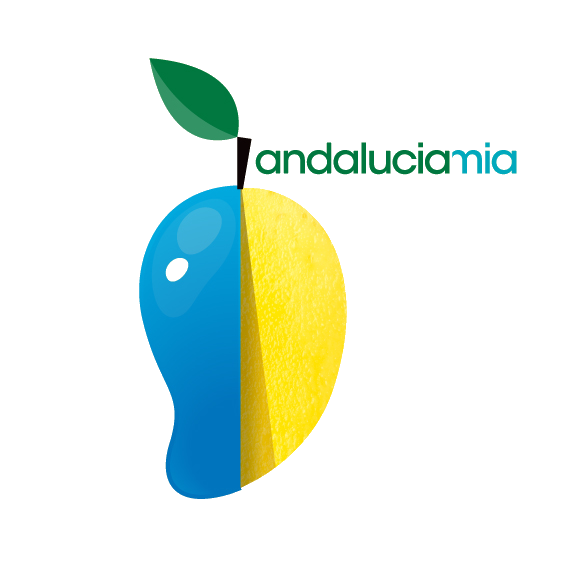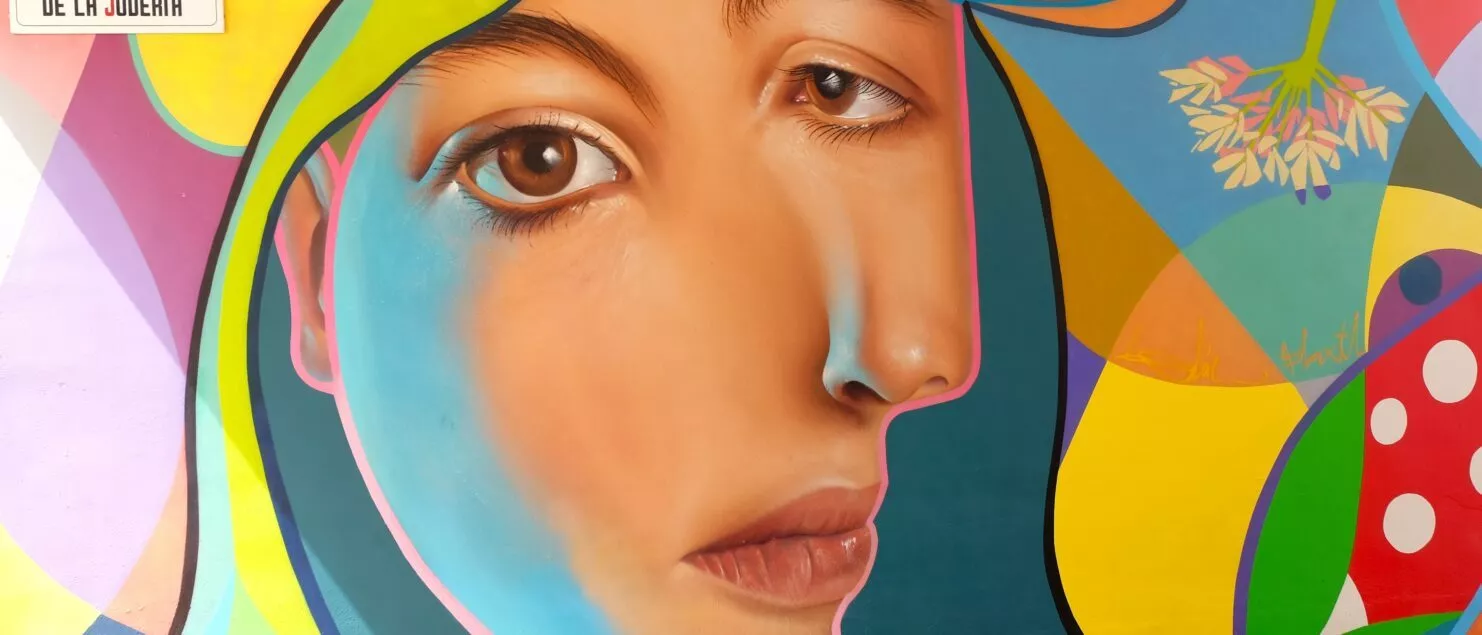What to see in Malaga in 2 or 3 days – discover all must-sees
Malaga the must-sees to visit and do in few days
In this article you will find the essential things to do and see in Malaga in 2 or 3 days :
- A quick history of Malaga
- What to do in Málaga?
- What to see in Malaga in 2 or 3 days
- The symbols of Malaga
- Book accommodation
- Ideas for outings around Malaga
- Useful links for your trip to Andalusia
- The latest blog articles

A quick history of Malaga
- Malaga was founded by the Phoenicians in the 8th century BC. They gave him the name Malakka. The foundations of Gibralfaro Castle (which can be visited) date from this era!
- In -576 BC, the Carthaginians took control of the city.
- In -219, following the Punic Wars, the city became Roman.
- Following the decadence of Rome, the Vandals took the opportunity to take the city around 410 AD.
- The city will then be taken by the Visigoths,
- Then by the Byzantine emperor Justinian
- And finally again by the Visigoths.
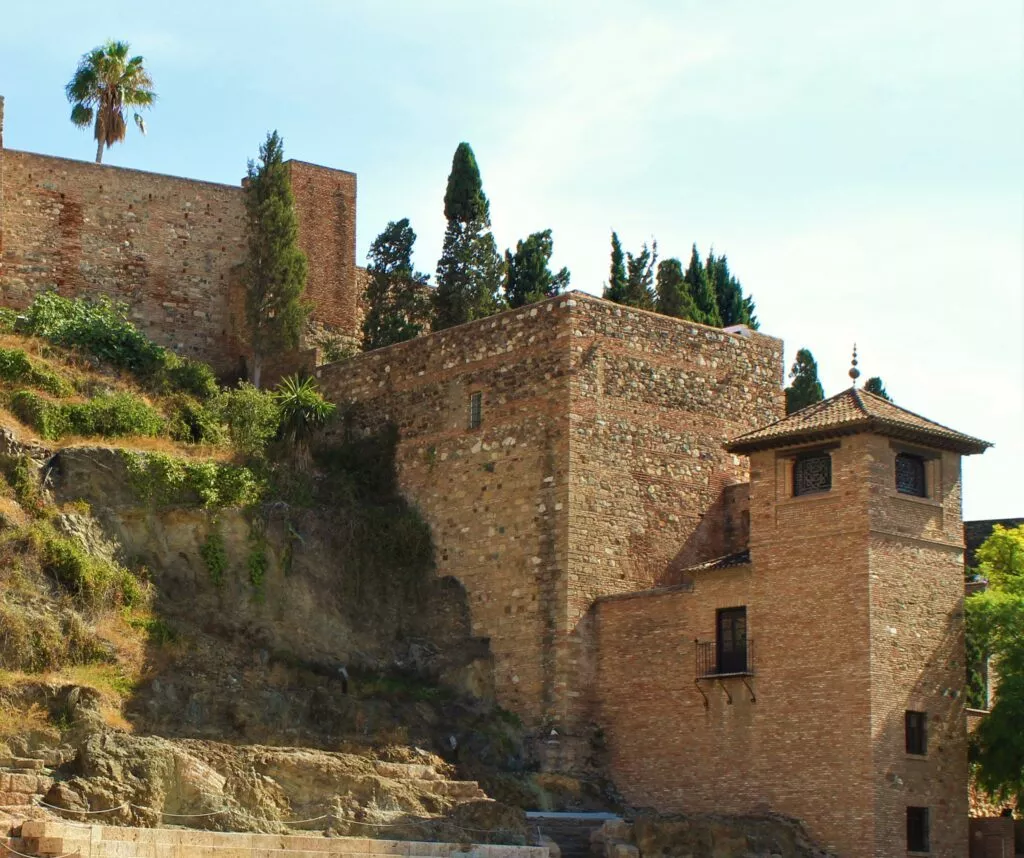
- In the 13th century, Malaga was conquered by the Moors in 743. It was then attached to the emirate of Córdoba under the name of Mālaqah (in Arabic: مالقة).
- The city was reconquered by the Catholic kings almost 8 centuries later, on August 19, 1487.
Note : in the following link you can book online several guided tours of Malaga in English.
What to do in Málaga?
- 30 minutes away, by taking the bus, you can book a great horseback ride near Malaga on the seaside.
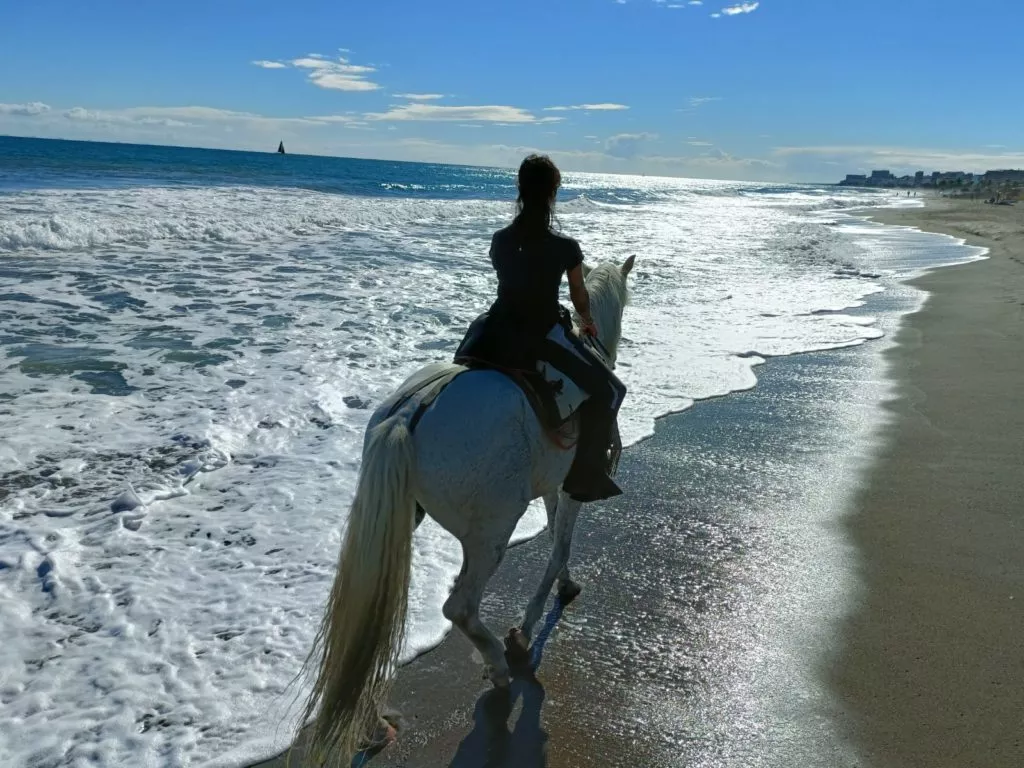
- One of the most popular activities in Malaga is the incredible Caminito del Rey hike.
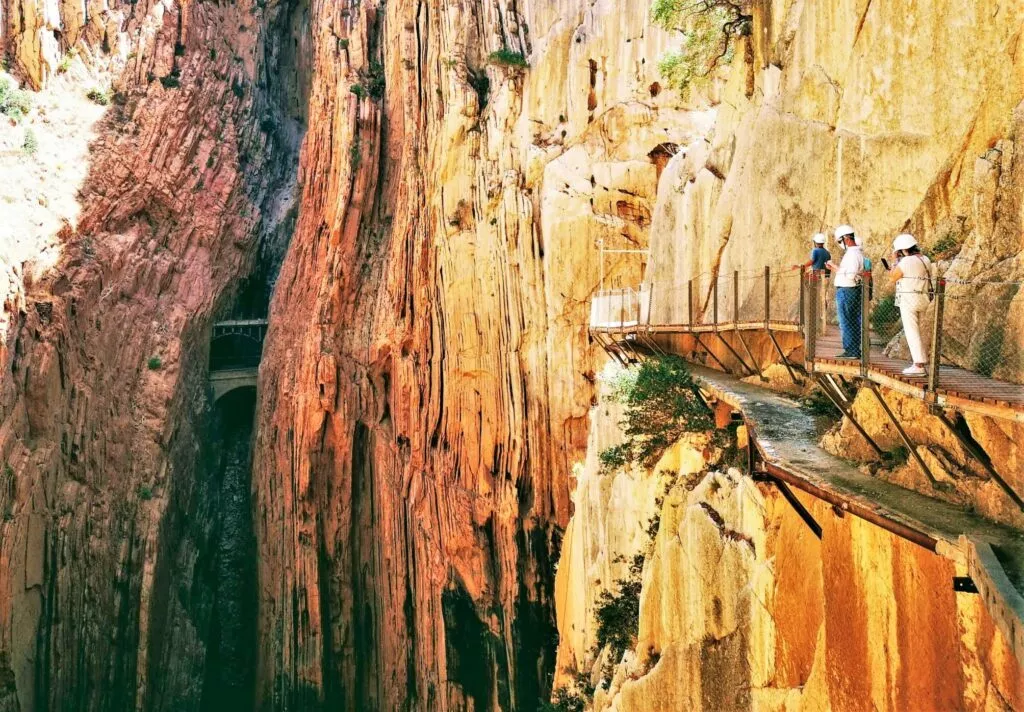
In the following link you can book online your tickets for the Caminito del Rey from Malaga with a guide.
Below, here are many ideas for activities, classified by theme. You can reserve them online today.
The +: the activities can all be canceled up to 24 hours before the scheduled date:
One last idea, because Malaga is a flamenco city, is to attend a flamenco show. Here is the link to reserve your tickets for the Alegría flamenco tablao. An authentic flamenco show.
List of essential things to see in Malaga during these days
- 1 – The Alcazaba, from the Arabic al-Qasbah, which means “citadel”
- 2 – The Cathedral of the Incarnation
- 3 – Gibralfaro Castle
- 4 – The Roman Theater
- 5 – The Plaza de toros de la Malagueta
- 6 – Church and Sanctuary of Victoria
- 7 – Parroquia de los Santos Mártires Ciriaco y Paula
- 8 – Iglesia San Juan Bautista
- 9 – Parroquia Santiago Apóstol Málaga
- 10 – Iglesia del Santo Cristo de la Salud
- 11 – The juderia of Malaga
- 12 – Marques de Larios street
- 13 – Two awesome sculptures to see
- 14 – The Atarazanas covered market
- 15 – Episcopal Palace of Malaga
- 16 – Plaza de la Merced
- 17 – Malaga Park
- 18 – La Cónsula garden
- 19 – Picasso Museum
- 20 – The Carmen Thyssen Museum
- 21 – List of 37 other museums in Malaga
- 22 – Very nice bars & restaurants for tapear
- 23 – The Chinitas passage
- 24 – Street art
- 25 – Discover 21 other secret and unusual places
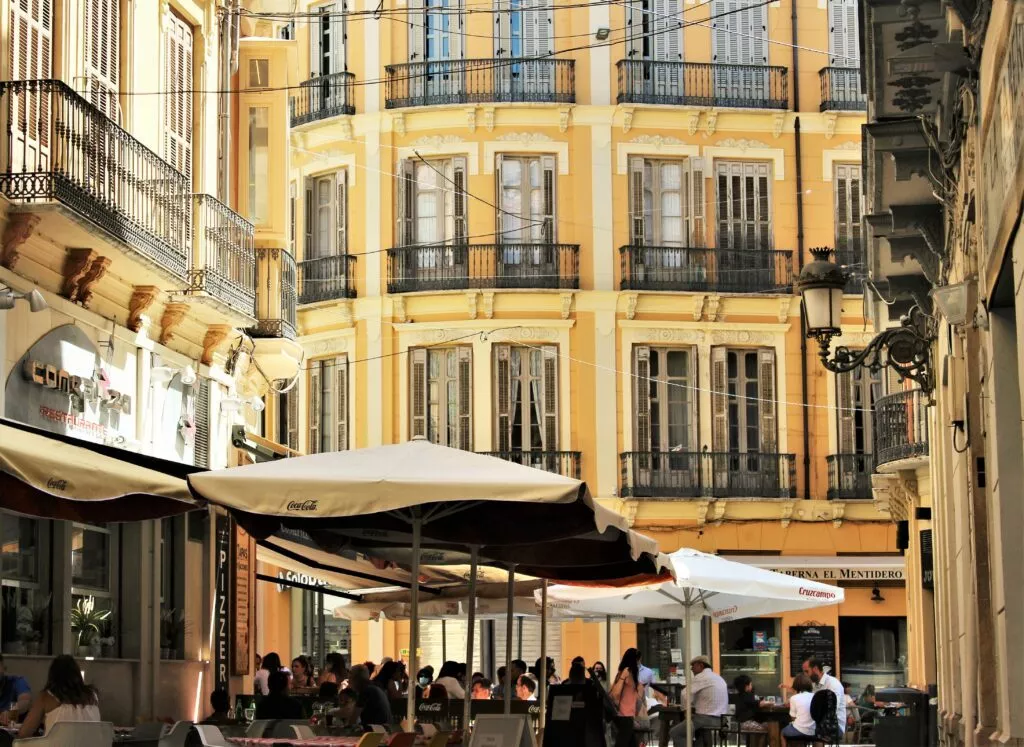
The Alcazaba, from the Arabic al-Qasbah, which means “citadel”
It is a palace, but also a fortress, built in the 11th century. It is located next to Gibralfaro Castle but they are two separate monuments.
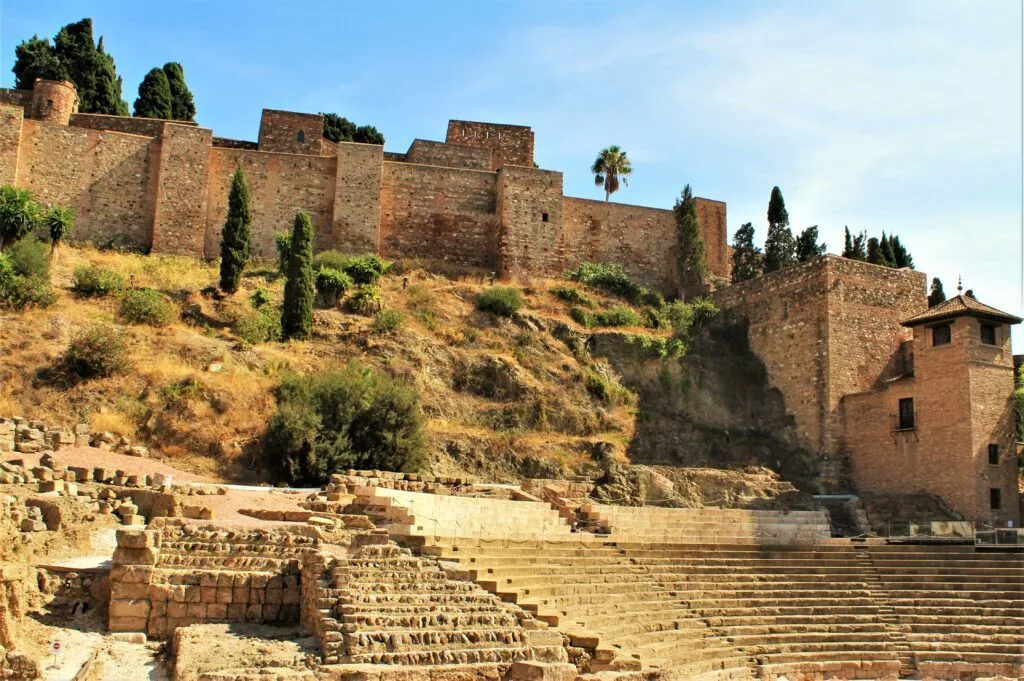
They are also from different periods. This palace was inhabited by the governor of the city during the Muslim era.
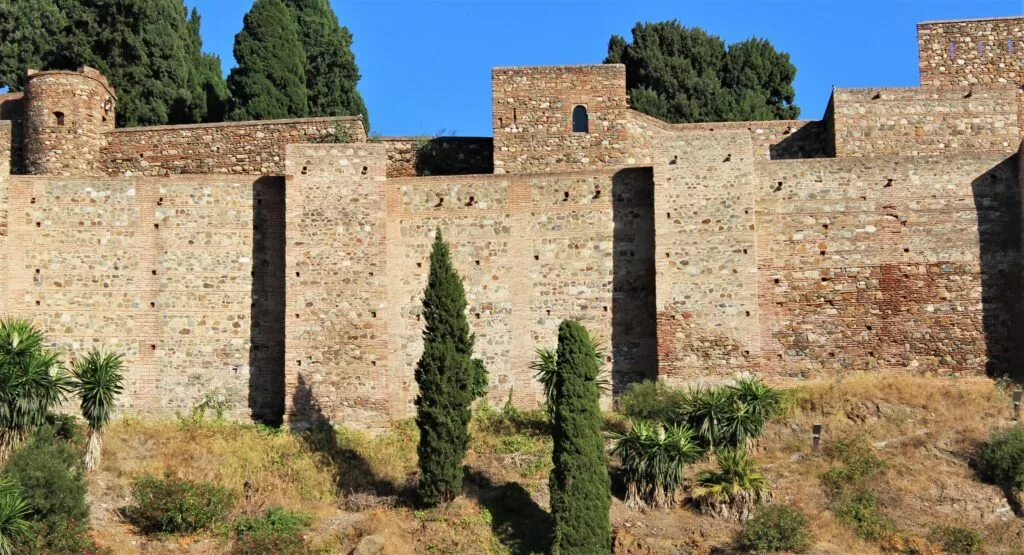
It would be inhabited later, after the reconquest of 1487, by kings like Philip IV and Charles III. This Alcazaba is a magnificent stopover for any visit to Malaga. It is possible to book a ticket for the visit to the Alcazaba and the cathedral online.
The Cathedral of the Incarnation
It was built between 1528 and 1782. It is one of the main Renaissance monuments in Andalucia, with its Baroque style facade. This cathedral is nicknamed La Manquita. Indeed, the second tower was never built, which gives it a unique vision for a cathedral.
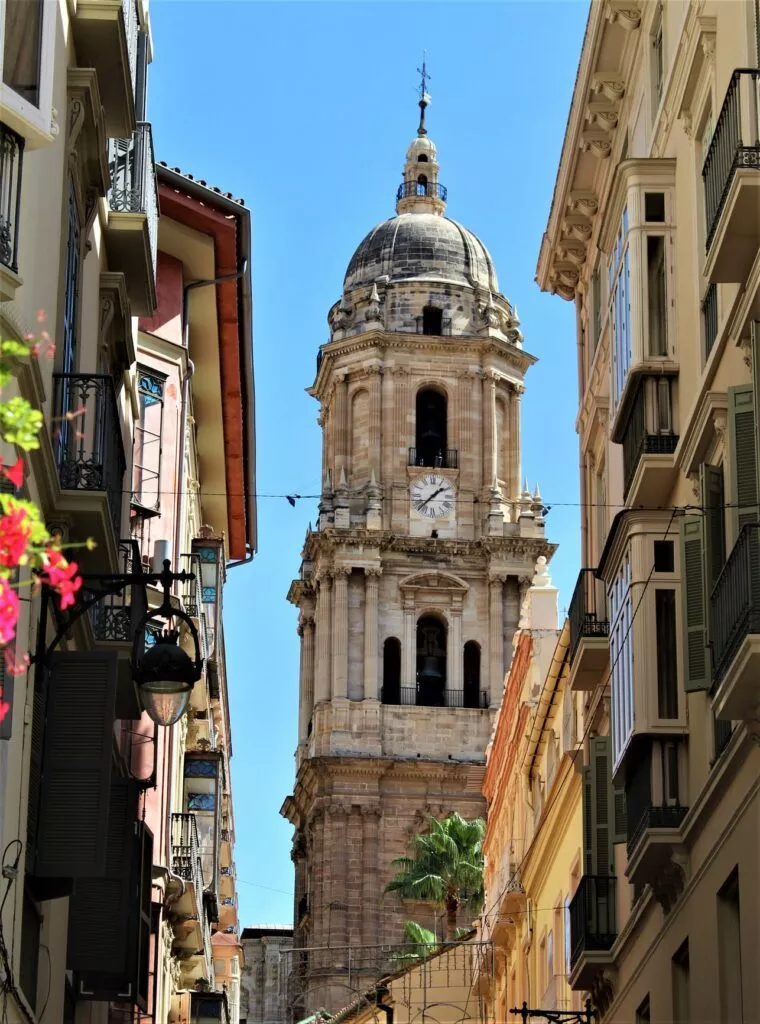
Its location right next to the Alcazaba is explained because it was built on the former great mosque of the city. It is also located inside the old Muslim fortifications.
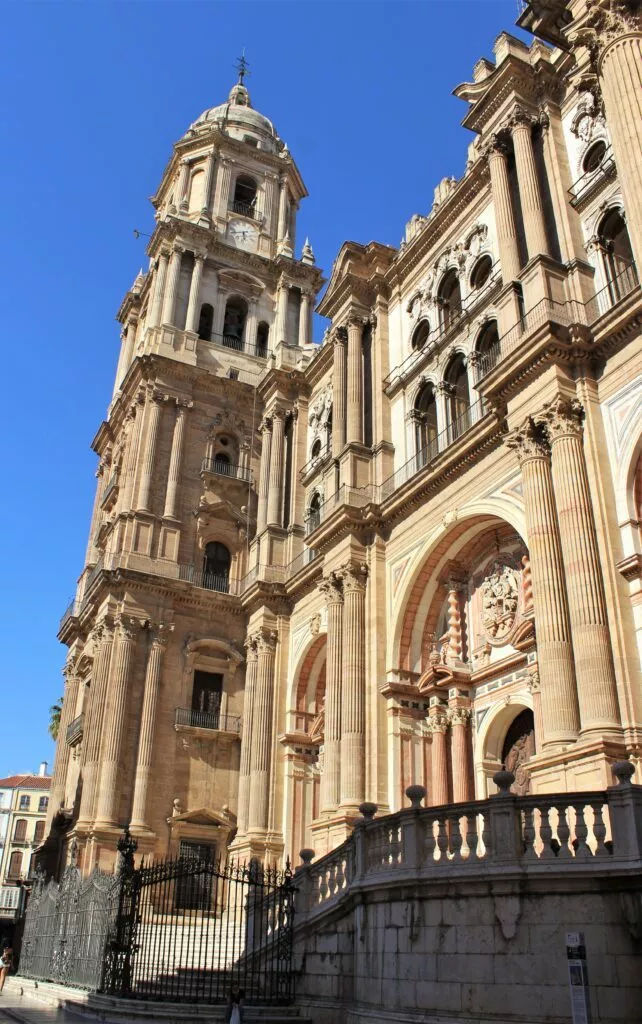
From this Muslim period, there remains the Patio de los Naranjos (the courtyard of orange trees) which has been preserved.
Gibralfaro Castle
It is a fortress castle which was built in the 14th century by Yusuf I, Nasrid king of Granada. It was built on Phoenician foundations. The Phoenicians had also built a lighthouse (faro) at the top of this mountain. This is what gave it its name!!
It was called Jbel-faro by the Arabs who became Gibralfaro. It was used to house the troops responsible for protecting the Alcazaba.
If you visit it, you can enjoy magnificent views of the city and the surrounding area. You can also see the Rif Mountains (mountain range in Morocco) as well as the Strait of Gibraltar.
The Roman Theater another must-see during these days in Malaga
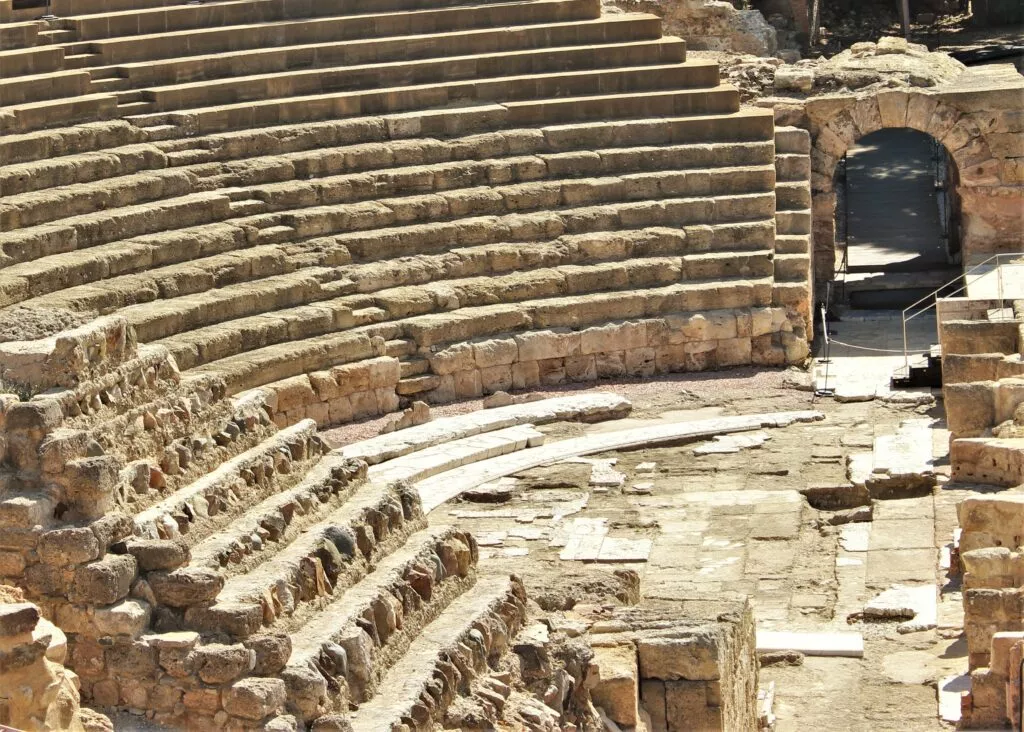
It is also found in the city center, at the foot of the Alcazaba hill.
The theater is in a very good state of conservation despite a totally incredible history. It is the main remains of the Roman era of the city of Malacca. It was under Augustus, the first Roman emperor (and adopted son of Julius Caesar) that Malaga saw the construction of this theater (1st century AD).
During this Roman period, Malaga was famous for the manufacture of Garum, which was exported to Rome.
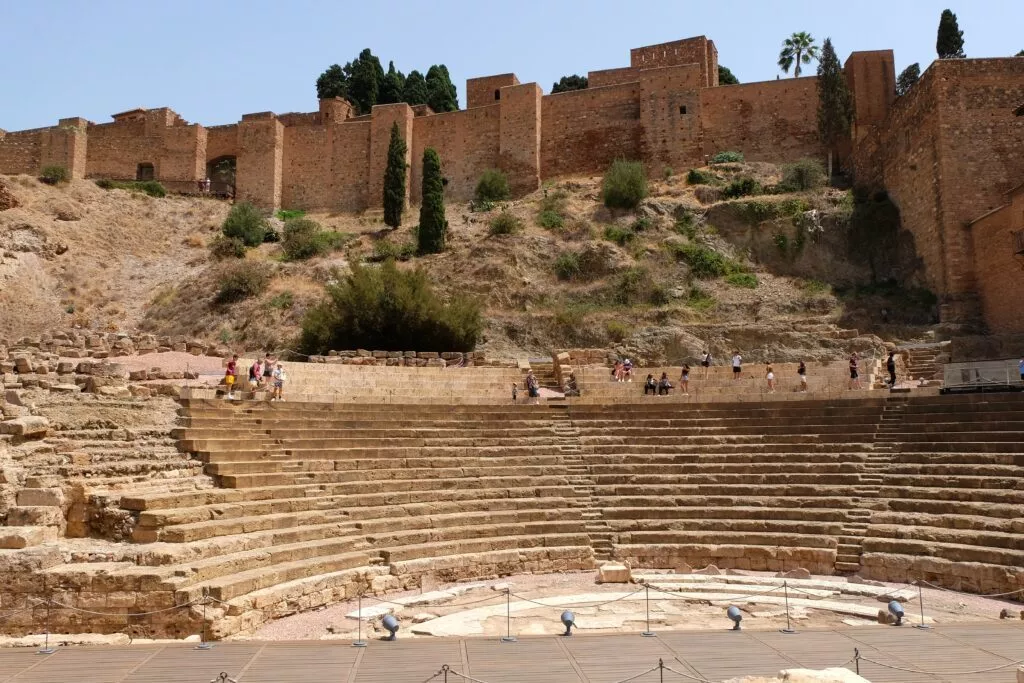
This Roman theater was used as such until the 3rd century. It will then serve as a cemetery for almost 3 centuries. After the Arab invasion, it was partially destroyed to use the stones for the construction of the Alcazaba.
Here is the link, if you wish to book your tickets online for the visit to the Alcazaba and the Roman theater.
The bullfighting plaza of Malagueta
The Plaza de toros was built in 1874, it is in neo-Mudejar style. Inside we will find the Taurino Antonio Ordoñez Museum.
Victoria Church and Sanctuary
This church was built on the exact spot where the armies of the Catholic kings were stationed during the siege of the city in 1487. Its construction began the same year, in 1487.
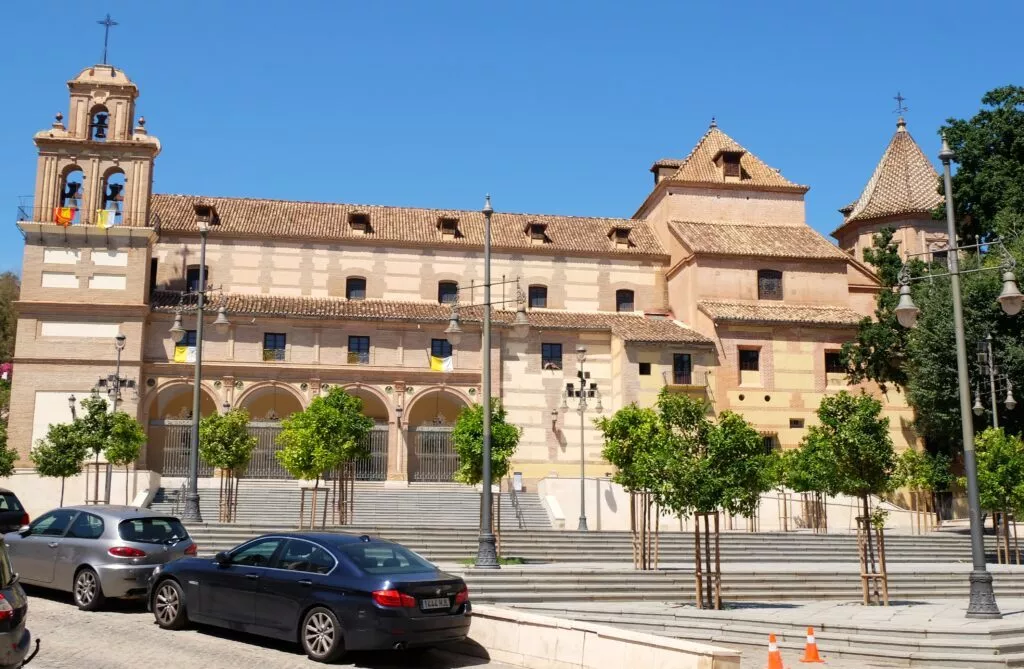
This church is worth a visit if only to see the magnificent altarpiece above the altar. This church is one of the curiosities and unusual places in Malaga, because it hides two unique baroque treasures!
Parish of los Santos Mártires Ciriaco y Paula
This parish church was also built from 1487. It is dedicated to the martyrs of the city.
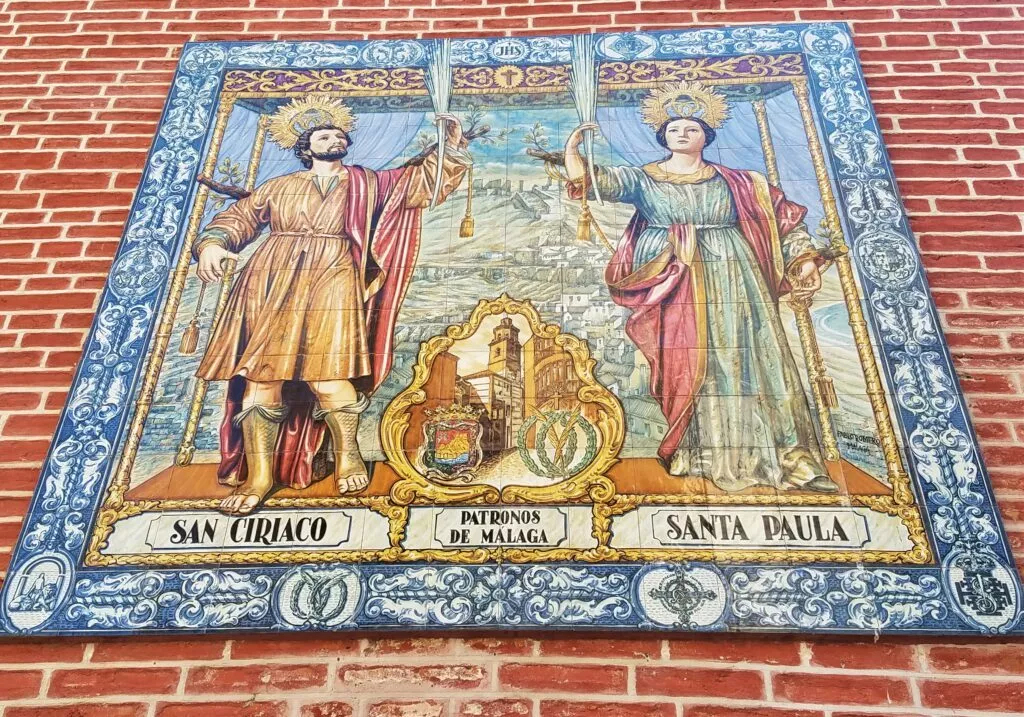
The interior of the church is Baroque style. It’s probably the one I prefer for its aesthetic inside. Outside it has a Mudejar style turret.
San Juan Bautista Church
It was built from 1490. It is known for its magnificent chapels inside.
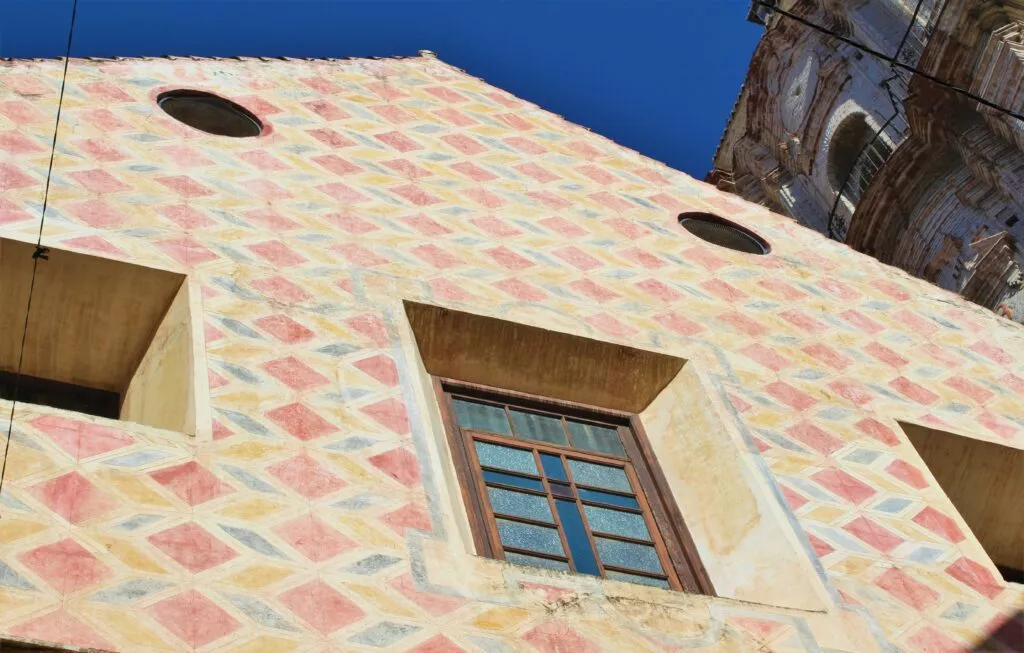
Santiago Apóstol Parish of Malaga
This church was built in 1490 and its particularity is to have a Mudejar style bell tower.
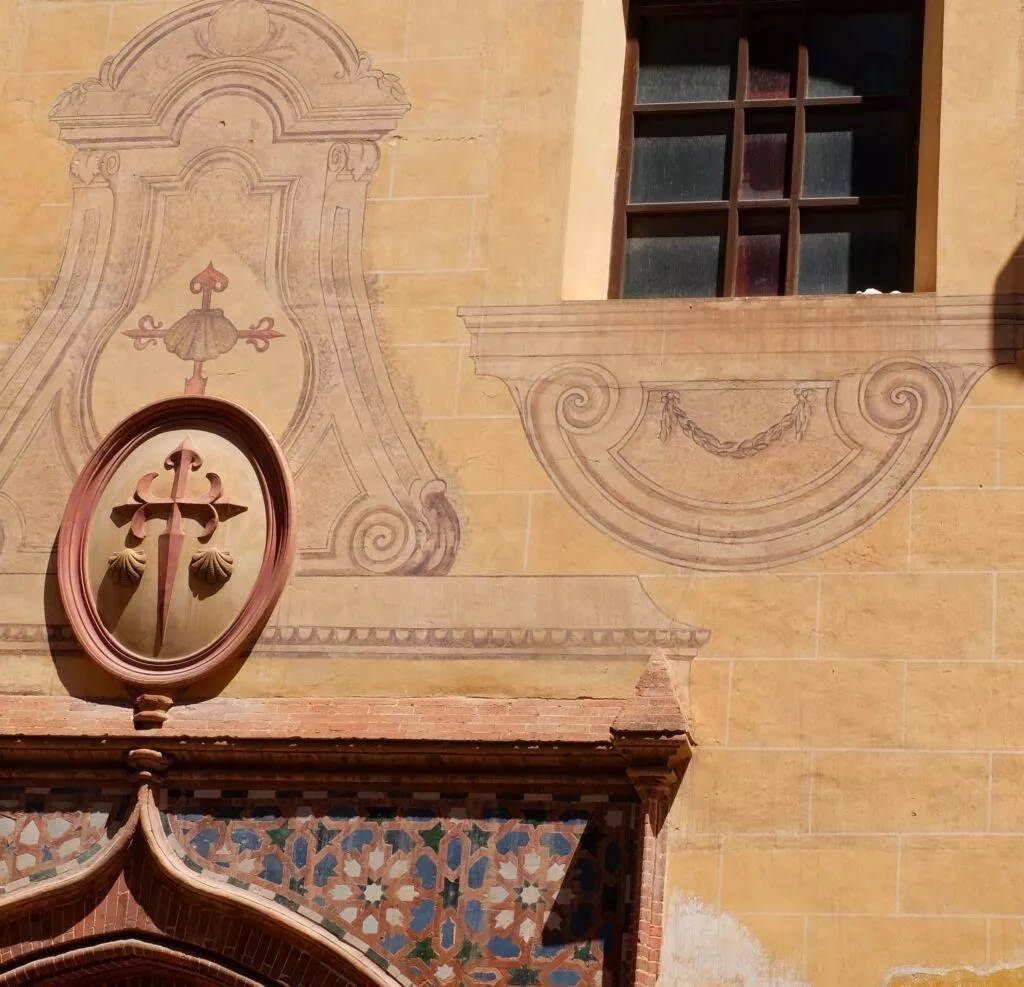
It is in this beautiful church that the most famous painter in the world was baptized. Picasso’s baptism certificate can be seen on display.
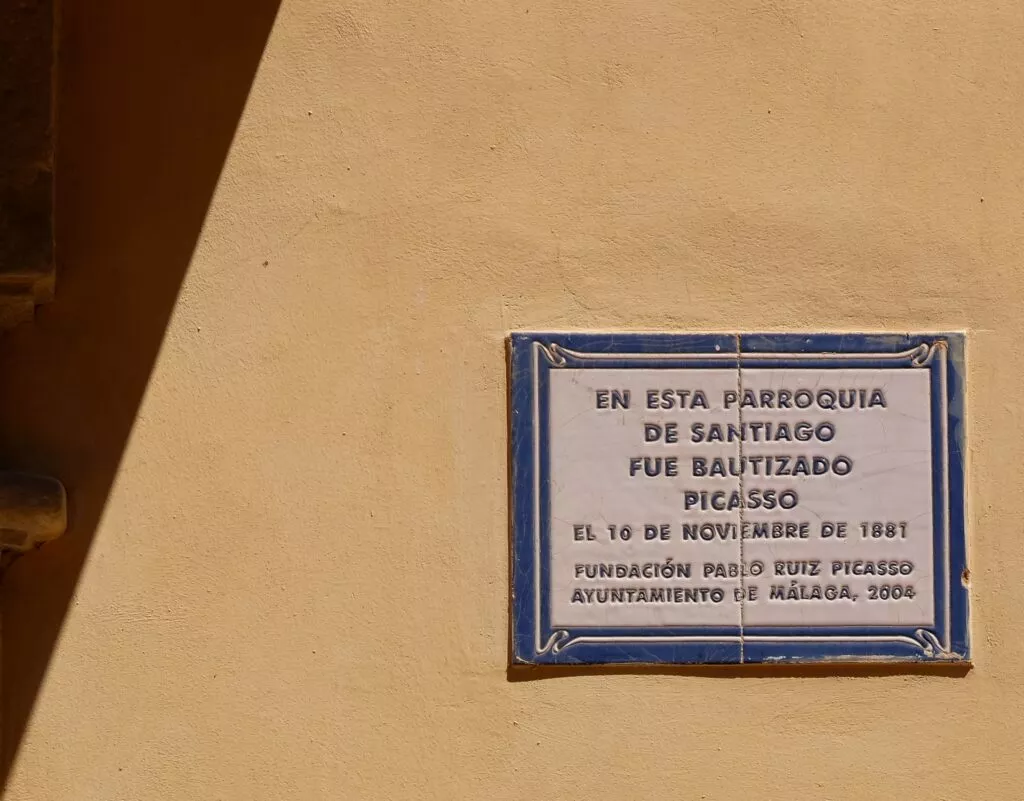
Church of Santo Cristo de la Salud
Inside it is possible to see a beautiful altarpiece!
La juderia, the old Jewish quarter of Malaga
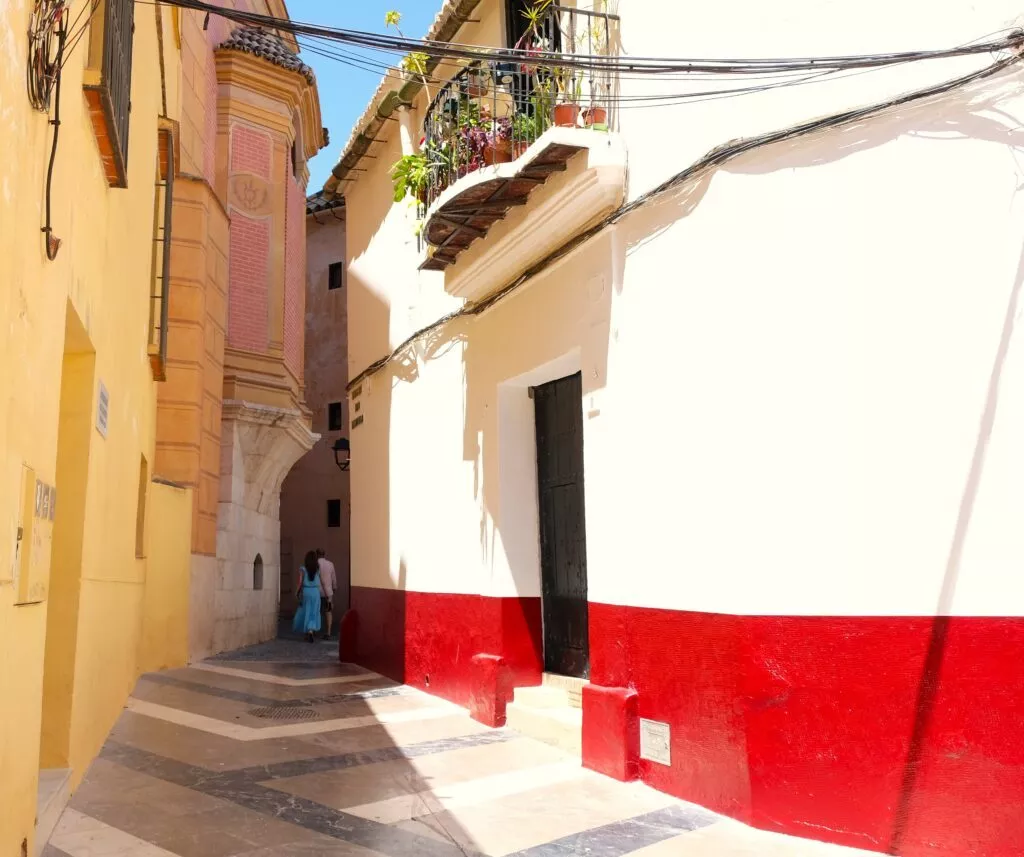
The streets of the Jewish quarter of the Al-Andalus era transport us to another era.
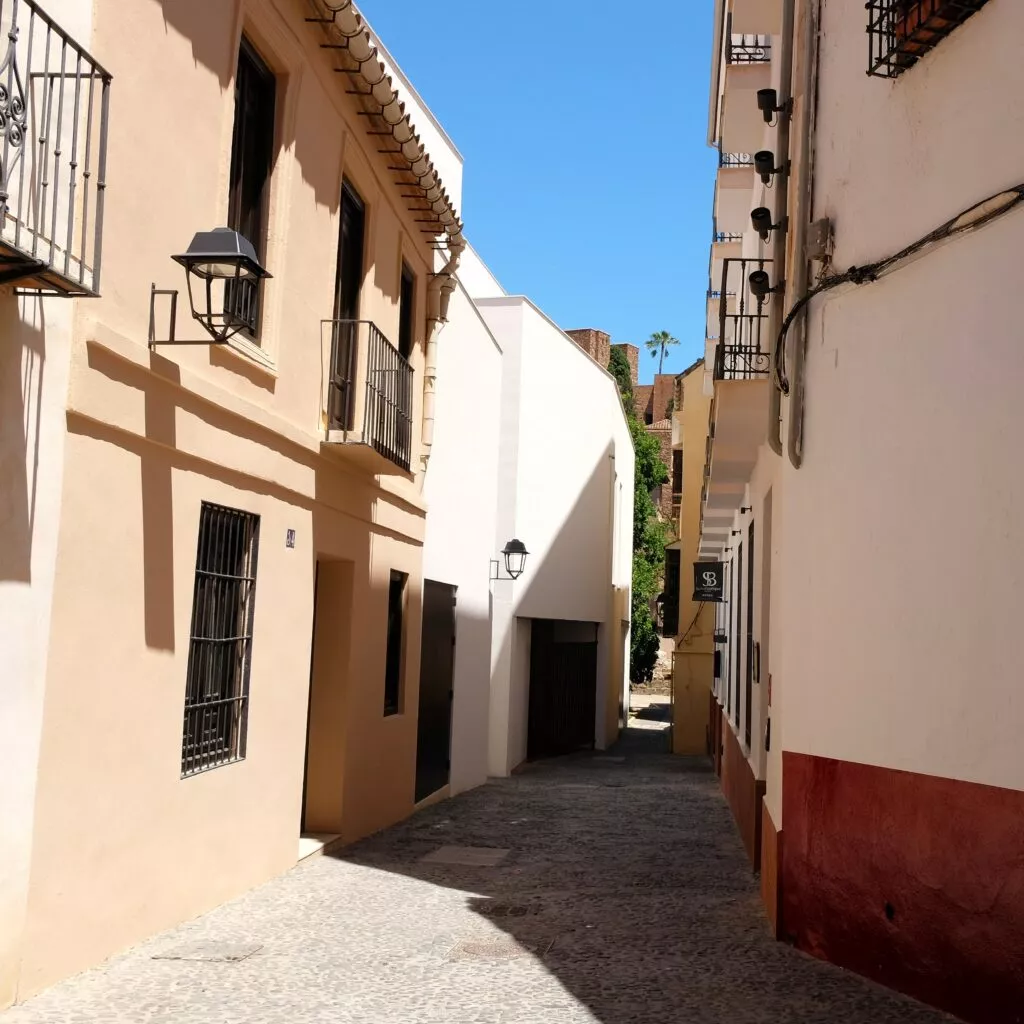
It is a pure joy to walk through the streets of this old neighborhood.
The neighborhood is located behind the Picasso Museum, between the streets: calle San Augustin and calle Alcazabilla.
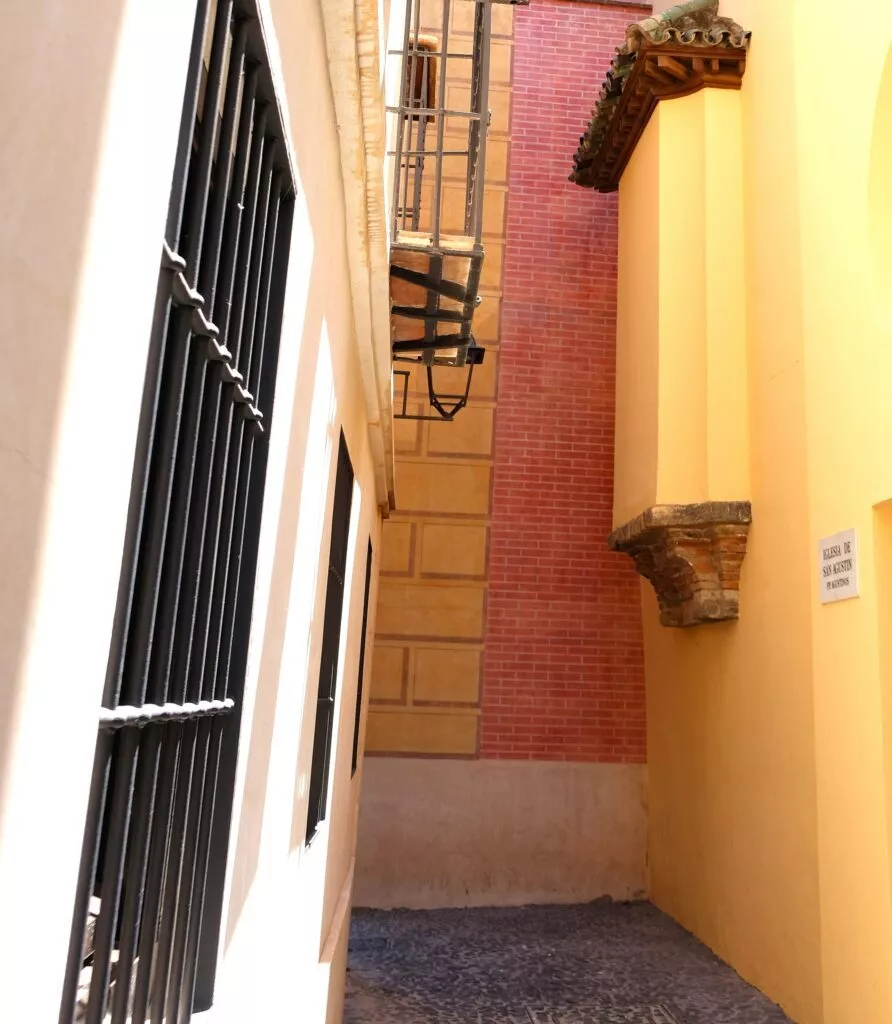
This part of Malaga’s history is remembered in Judería Square:
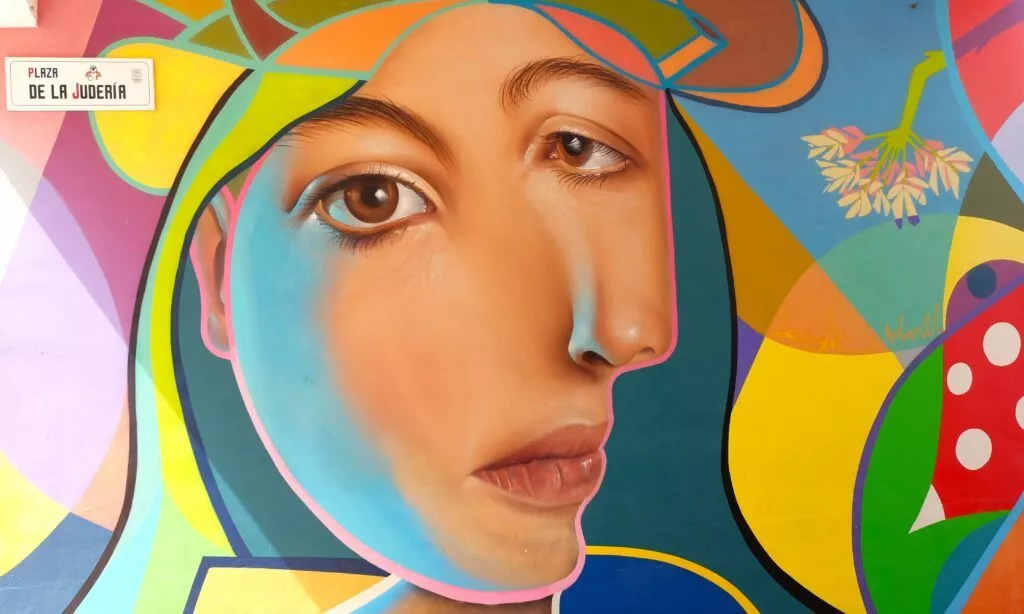
On this square there is a commemoration center, named Salomon ibn Gabirol. A great poet and philosopher born in Malaga around 1021.
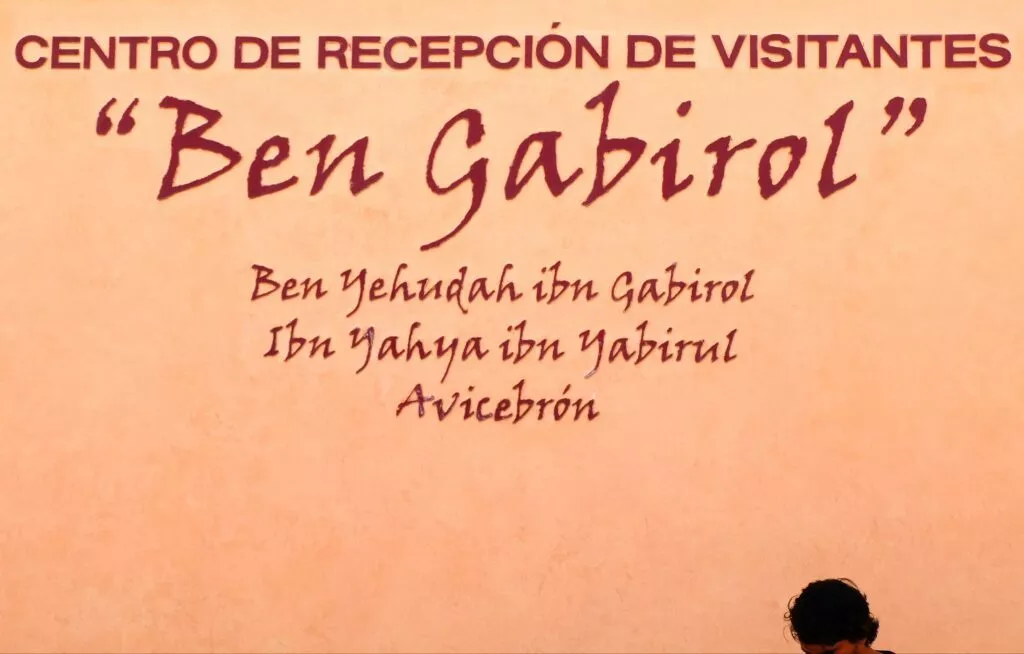
Note: If you have the chance to go to Córdoba during your stay, I invite you to discover the Jewish quarter, the Juderia de Córdoba. It is absolutely beautiful and has remained very authentic. The juderia of Seville, also magnificent, on the other hand, has the particularity of being a Jewish quarter after the reconquest.
Marques de Larios street, iconic place in Malaga
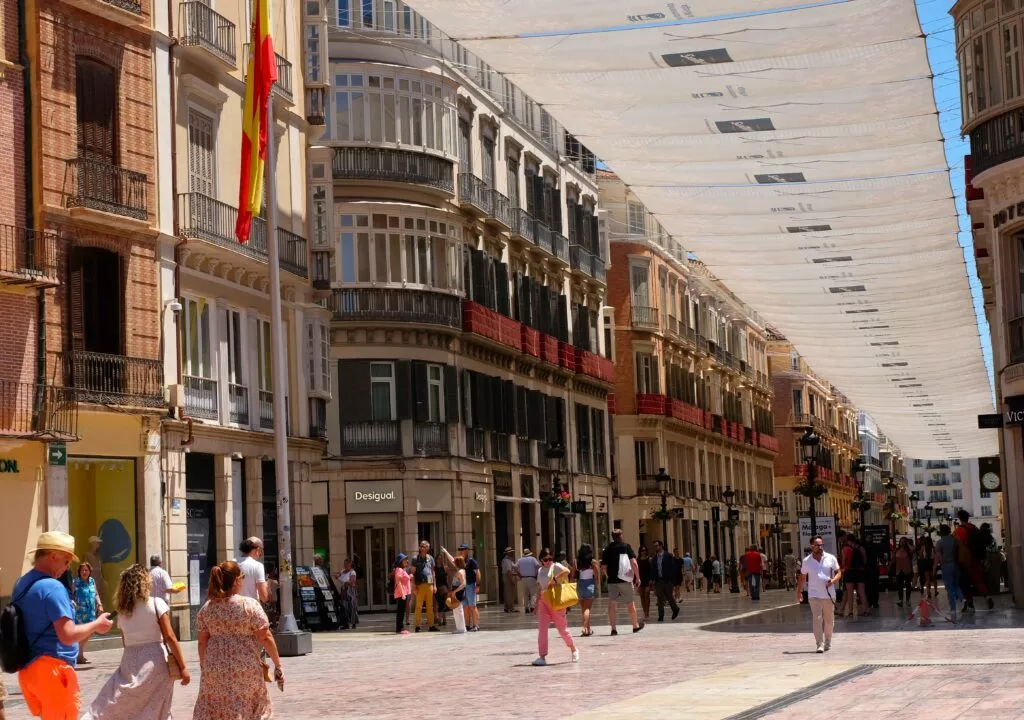
It is the most famous street in Malaga. It is also the center of the largest popular fair in Andalucia: the Malaga Fair in August.
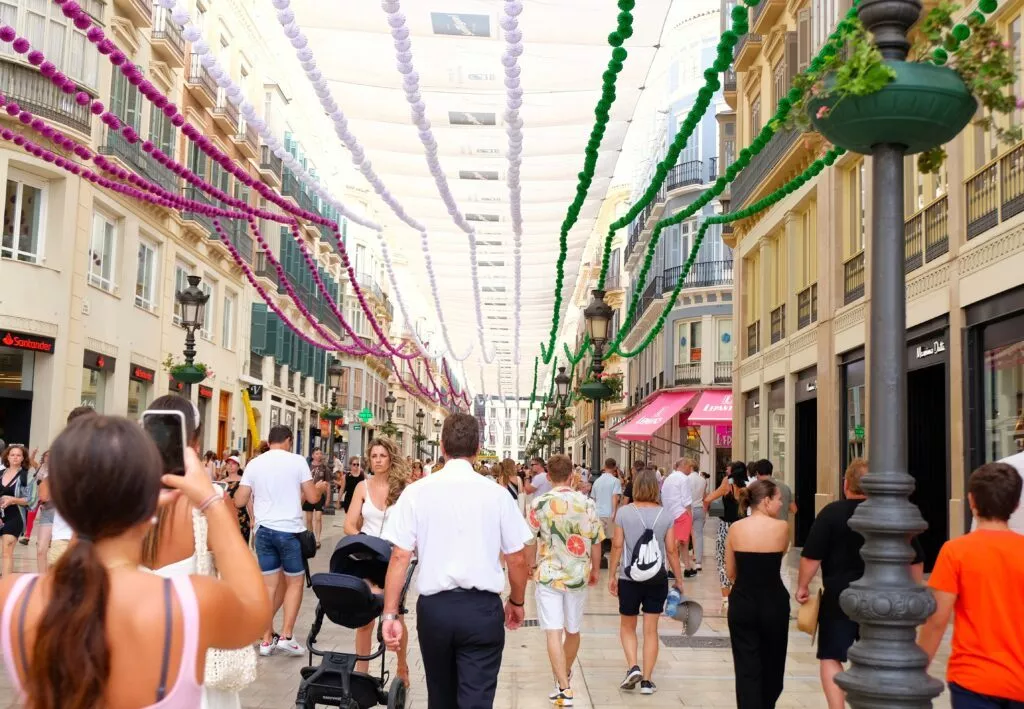
A fair to see but above all to experience! We often enter the city center via this street located opposite the port.

Two awesome sculptures to see in Malaga during these days
Among the things and places to see in Malaga there are many sculptures that are worth stopping for a moment
There are two that I “come to see” every time:
The Punto de vista (Point of view) sculpture
It is quite brilliant and surprising because as you move around this sculpture, different faces appear.
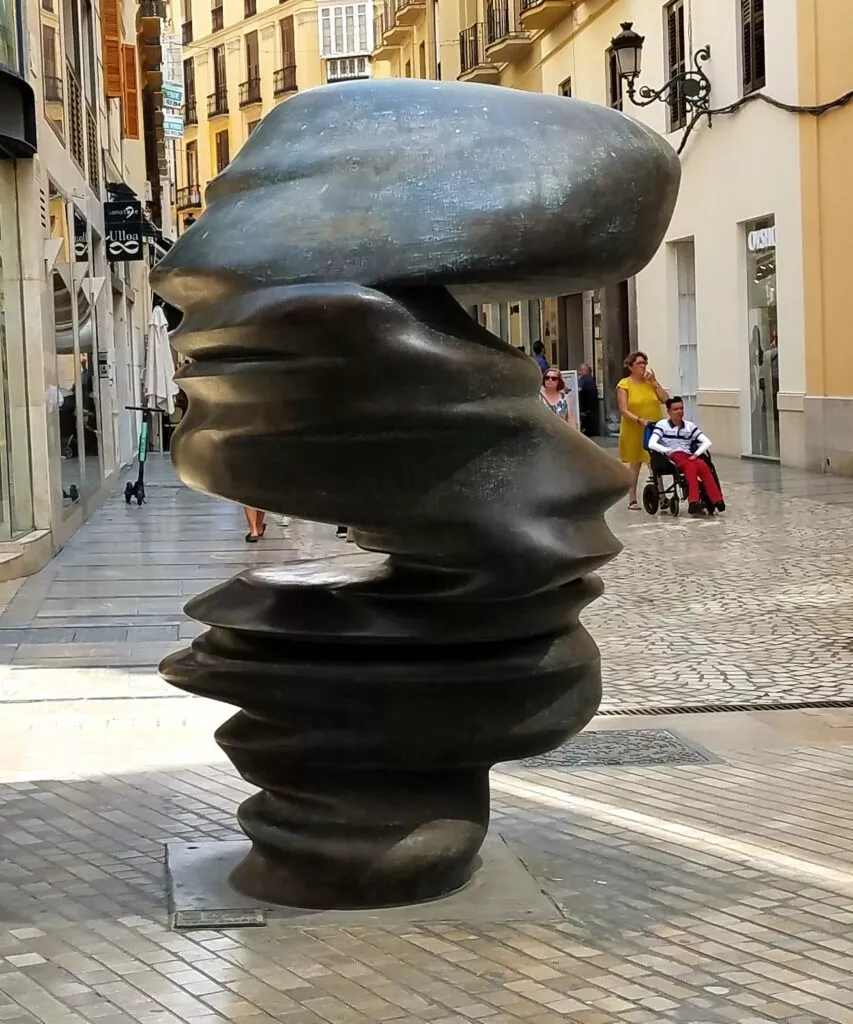
The sculpture of the bust of Pedro de Mena
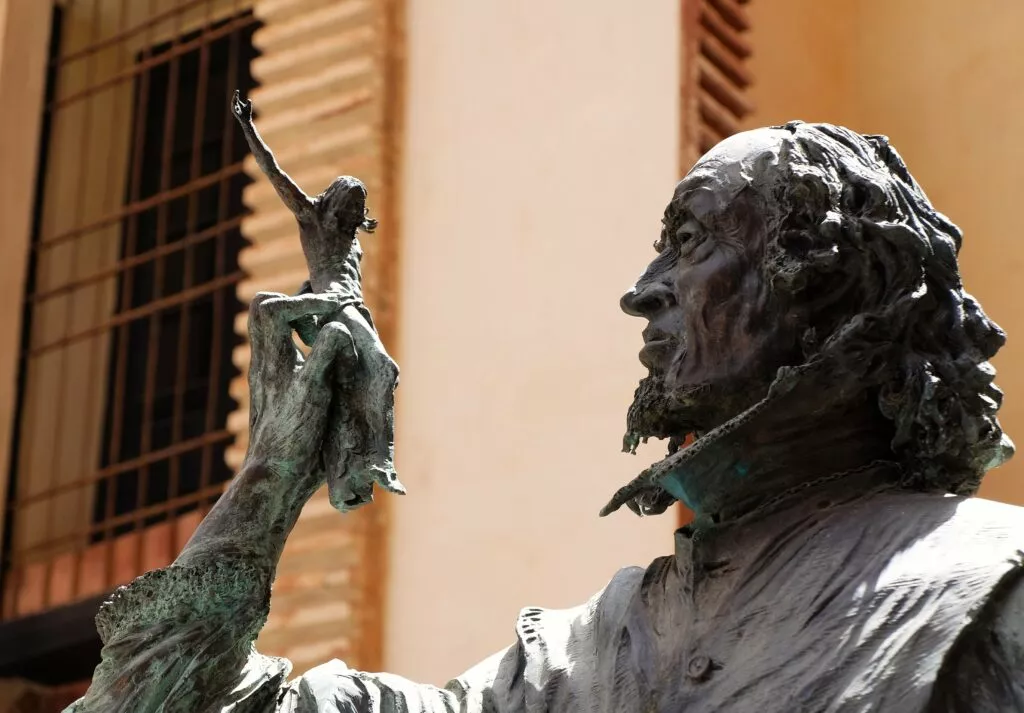
This sculpture is incredibly beautiful. It is located right in front of the Revello de Toro museum, also very beautiful.
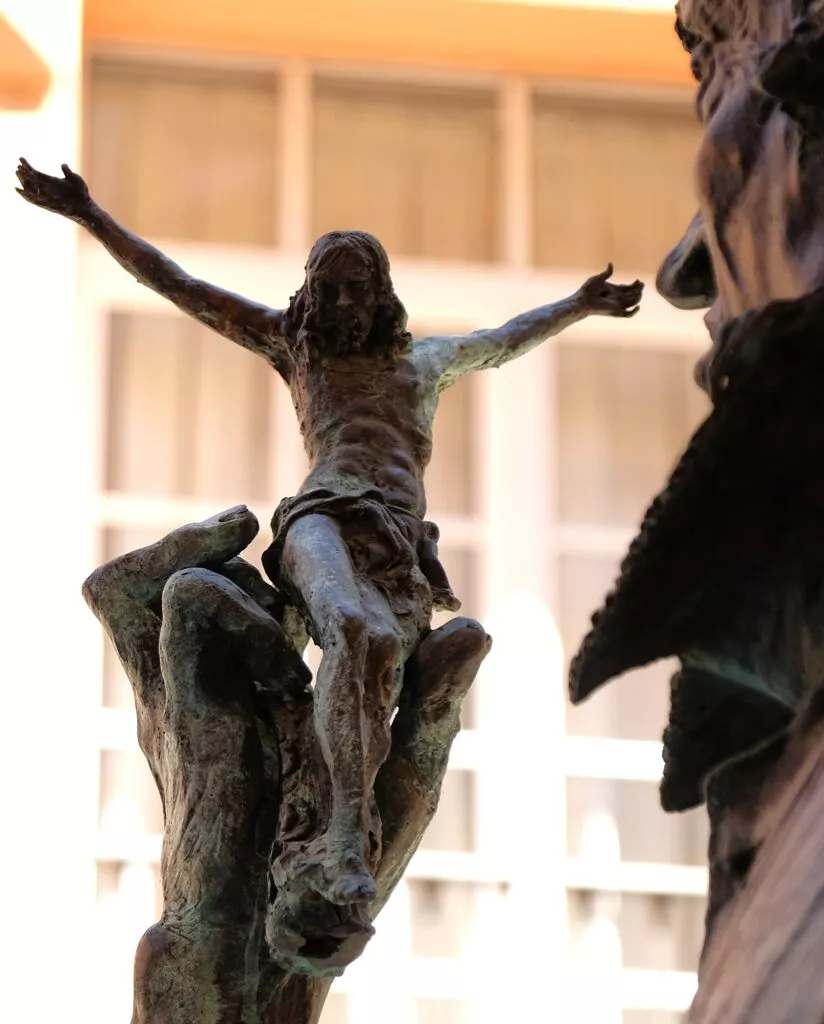
The Atarazanas market
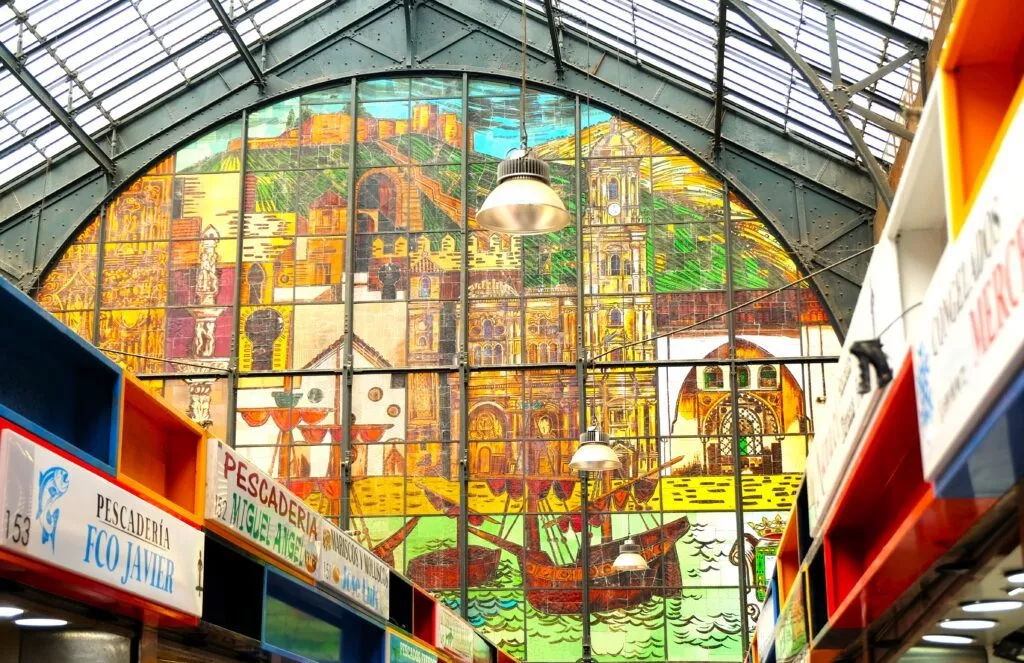
The Atarazanas covered market is not to be missed during your visit to Malaga! It is a magnificent covered market with all local and typical products.
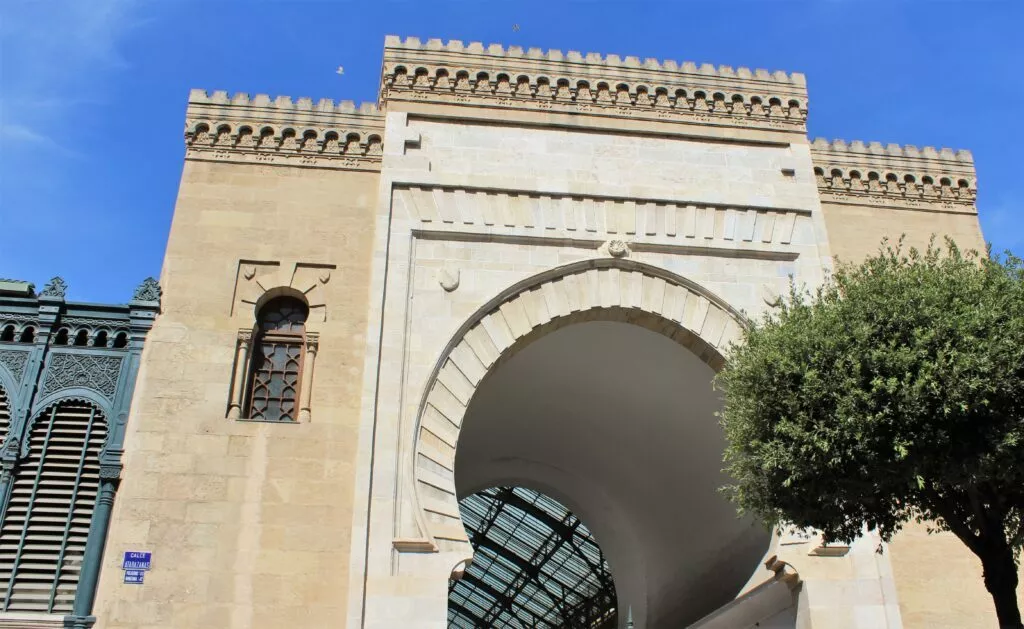
The building has retained its original structure from the Al-Andalus period.
Episcopal Palace of Malaga
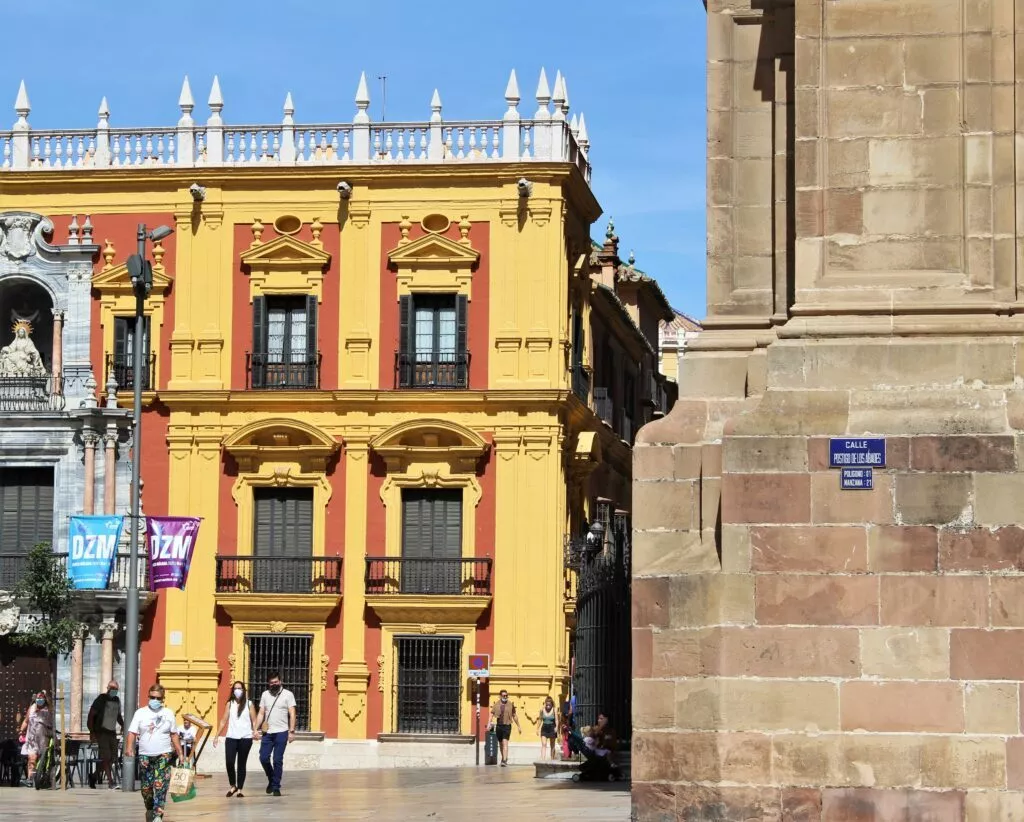
This episcopal palace is absolutely beautiful. Its construction was launched in 1762. It is located in Plaza del Obispo, right next to the cathedral.
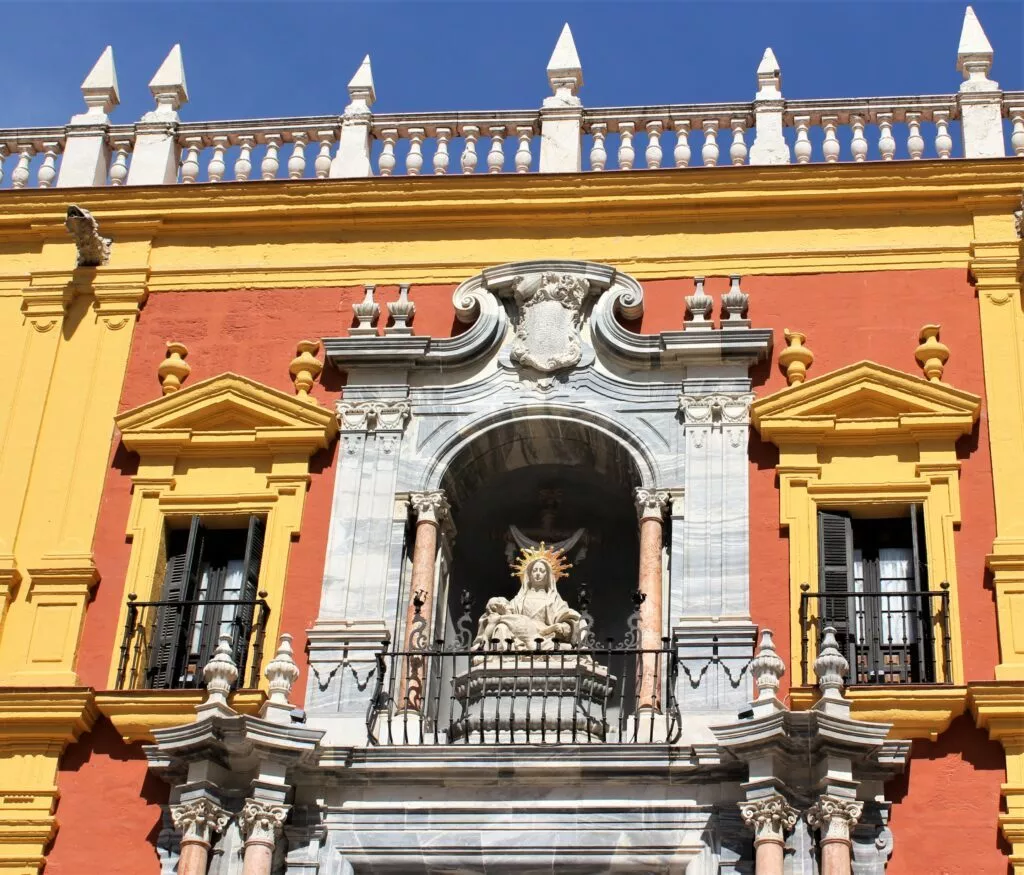
The ideal is to stop for a drink on the square to admire this palace and the cathedral.
Plaza de la Merced – Merced square –
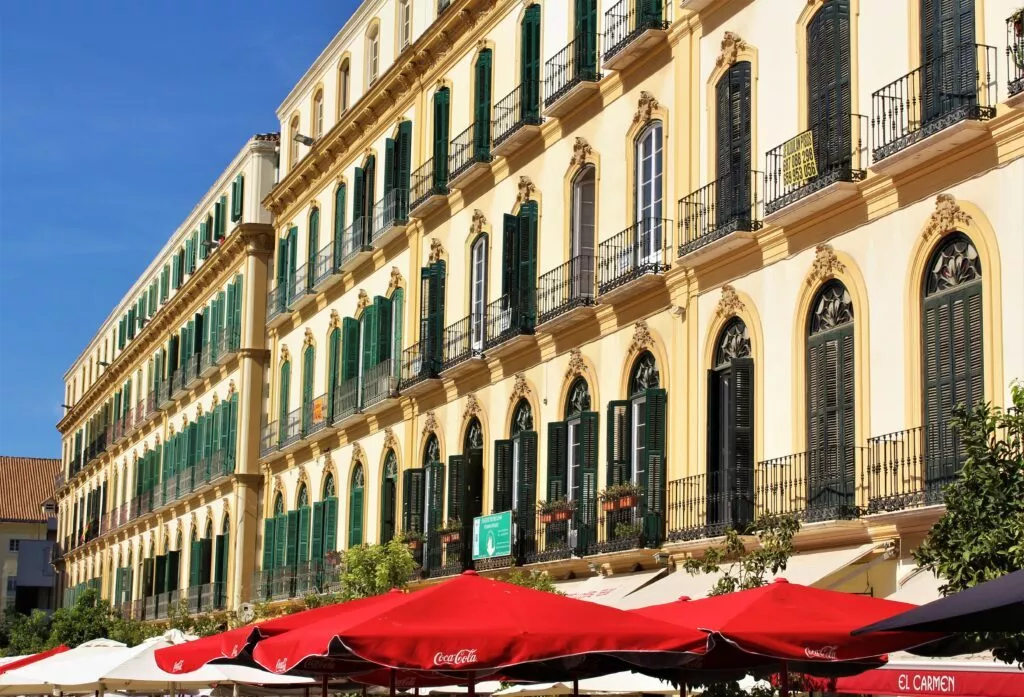
This square near the city center is really very beautiful. There you will discover Picasso’s birthplace as well as a statue of the painter, seated on a bench, at its real size.
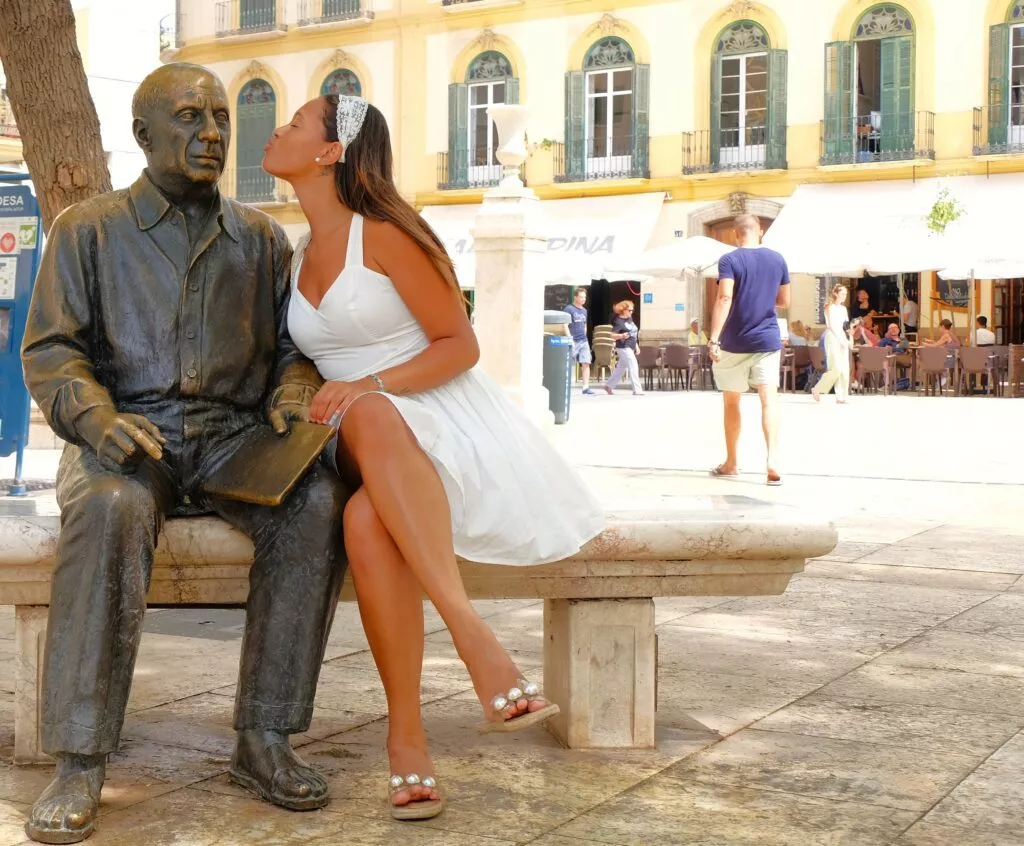
Malaga Park
It is a botanical garden which is located parallel to the port (Muelle 1). It extends over 1 kilometer from the Plaza de la Marina to the Plaza de toros de la Malagueta. This park is almost 130 years old, and it is a true haven of coolness in summer.
It also allows you to admire plants from 5 continents, which from a botanical point of view is very rare. It’s really an opportunity for a magnificent walk and to find a little freshness.
The Picasso Museum
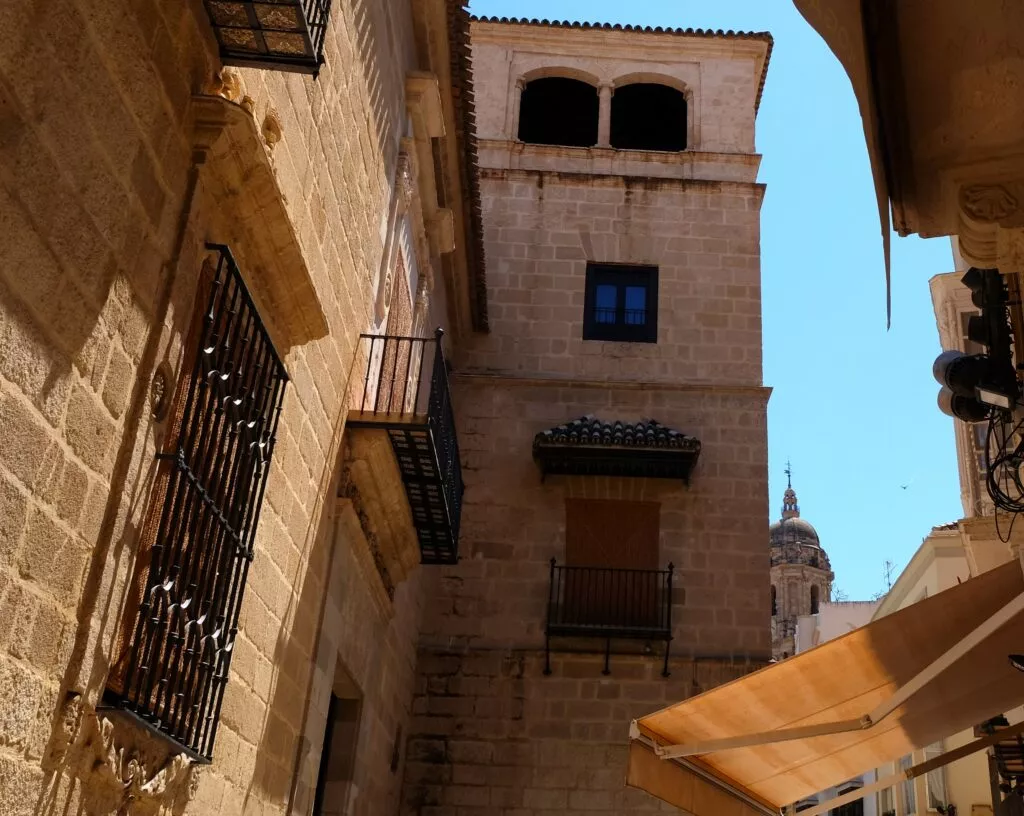
The Picasso Museum is a little marvel.
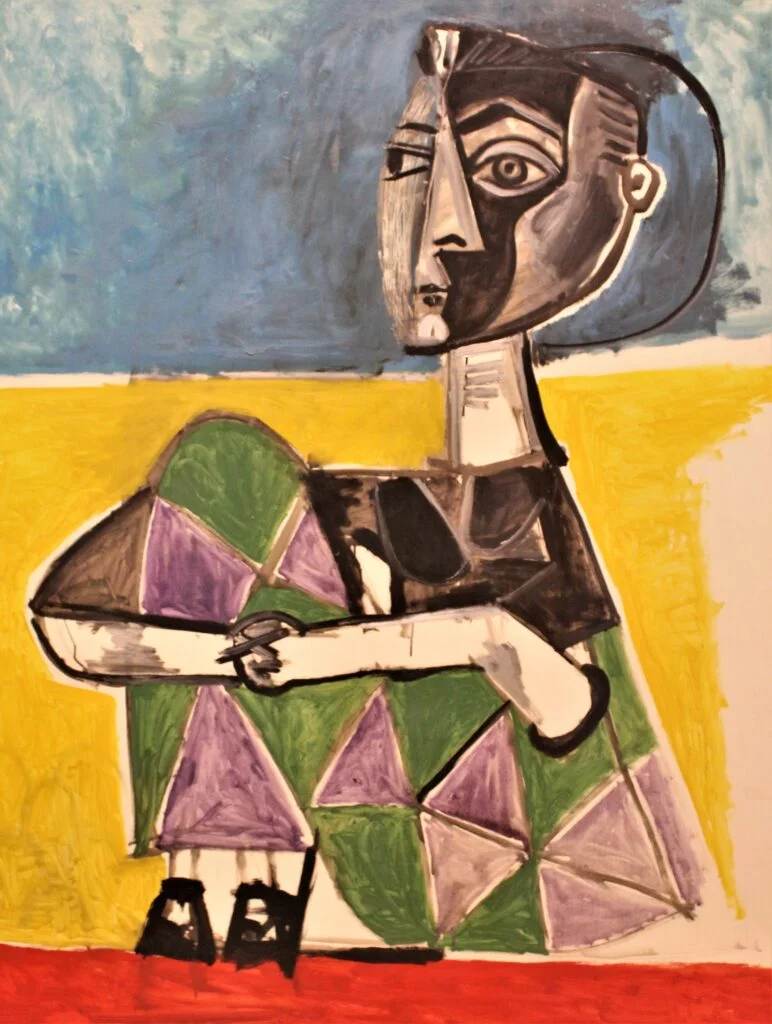
It is located in the Buenavista Palace and allows you to admire some of his best-known works.
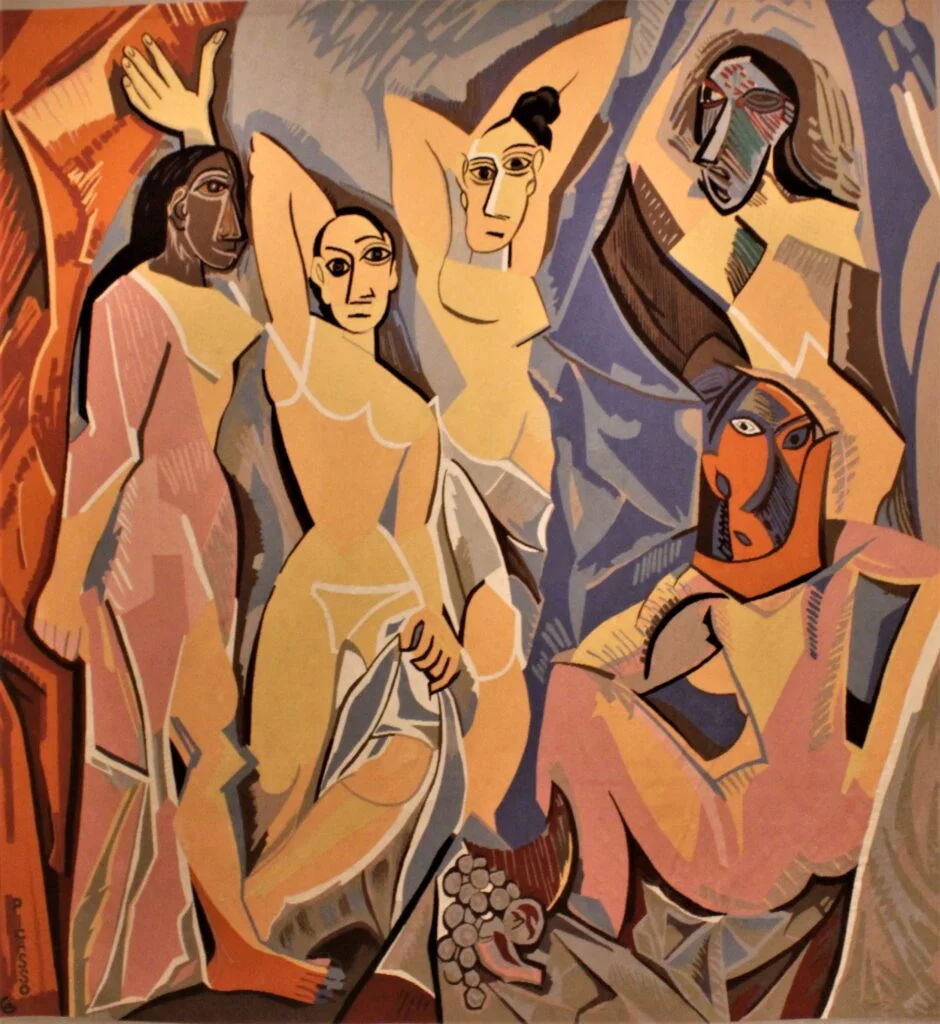
In the following link, you will discover the full name of Picasso and you will have the possibility to reserve your entrance tickets to the museum online.
The Consula garden
It is a 12-hectare botanical garden which today houses the Malaga hotel school. The house and this park belonged in the 1960s to the American couple Bill and Annie Davis. In 1959, E. Hemingway, who made numerous trips to Andalucia, stayed in this property.
A book will come out: “The Dangerous Summer” in which the writer will recount the rivalry between two bullfighters, including Antonio Ordonez. Below is a photo of Ernest Hemingway with Antonio Ordoñez in Malaga in 1959.
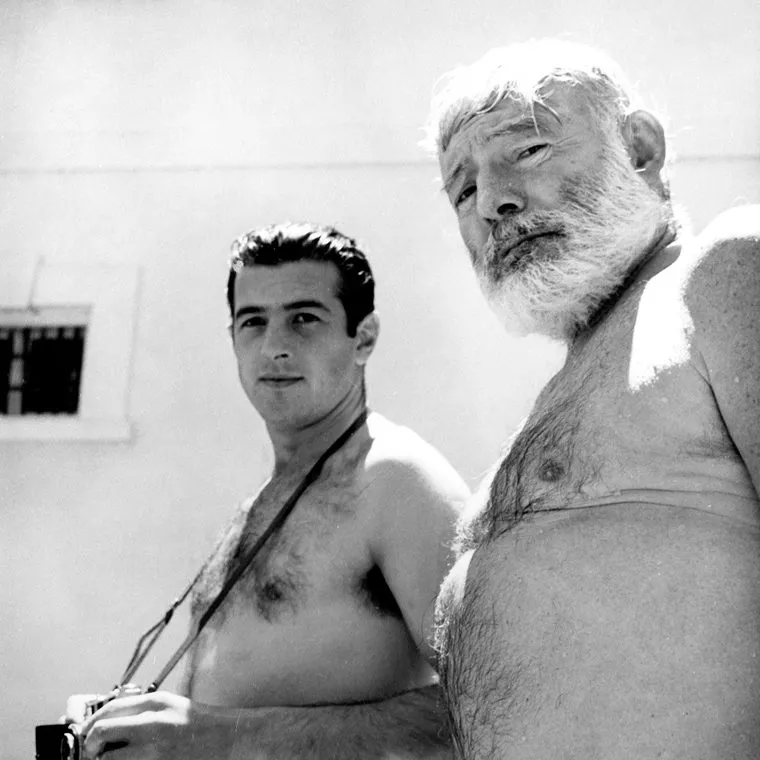
The Carmen Thyssen Museum
This museum is also located in a superb palace. It is located in the Palace of Villalon. In addition to temporary exhibitions, it offers the largest permanent collection of Andalusian paintings from the 19th century.
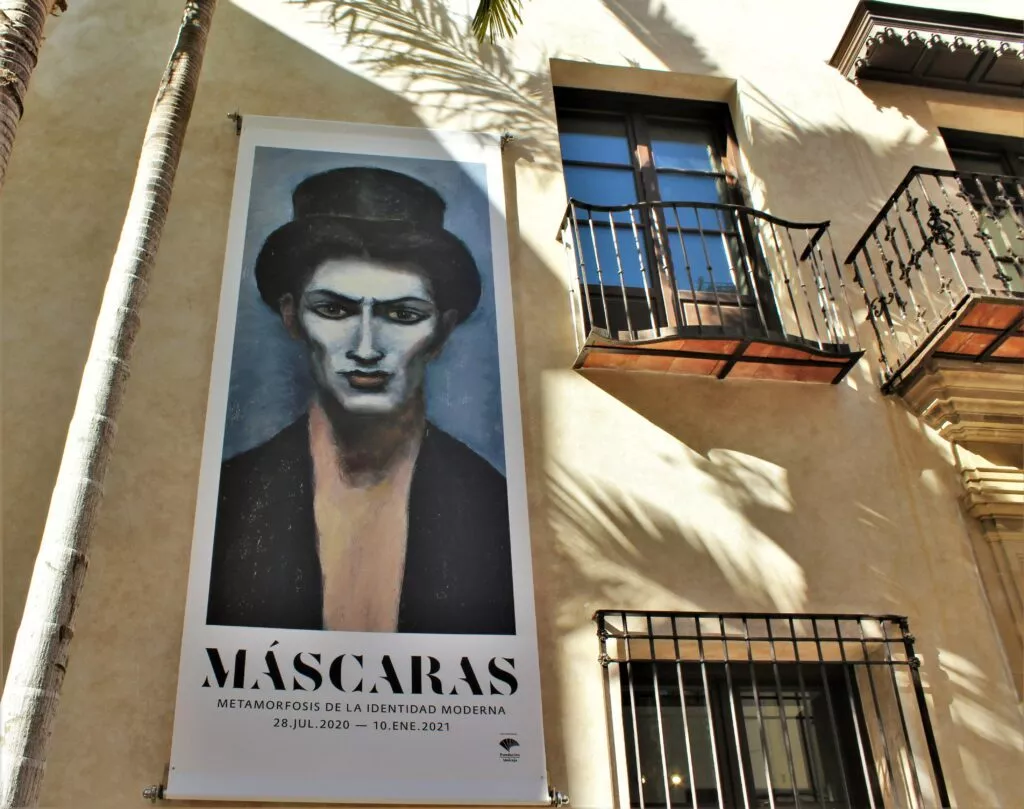
We discover the way of life and the habits and customs of the time through his paintings. It is possible to reserve your tickets for this magnificent museum in the city center online.
List of 37 other museums in Malaga
The range of museums in Malaga is quite exceptional… For certain museums, 4 of them, it is possible to reserve your tickets online, see below:
- Casa Gerald Brenan
- Museo Félix Revello de Toro (very beautiful!)
- Museum Jorge Rando
- Gibralfaro Castle Interpretation Center
- Ars Málaga, Palacio Episcopal
- Ecomuseo Nereo (shipyard)
- Ifergan Collection
- Ecomuseo Lagar de Torrijos
- Museum of Imagination
- Museo del Vidrio y Cristal
- Museo de Artes y Costumbres Populares de Málaga
- Tauromaquia Art Center
- Museo/Tour Málaga Club de Fútbolmaquia
- MIMA, Interactive Music Museum of Malaga
- Málaga Bullfighting Museum
- Malaga Museum, Palacio de la Aduana
- Centro Pompidou Málaga (superb)
- Centro de Arte Contemporáneo (CAC) Málaga
- Cathedral Museum
- Fundación Picasso, house birth
- Museo Alborania, Aula del Mar (very interesting)
- Wine Museum
- Municipal Heritage Museum
- Collection of the Russian Museum in Malaga (superb too!)
- Museo Nacional de Aeropuertos y Transporte Aéreo
- Museo de la Archicofradía de la Esperanza
- Málaga Automotive and Fashion Museum
- Museo de Arte Flamenco, Peña Juan Breva
- Museo del Cautivo y la Trinidad
- Museo-Tesoro de la Cofradía de la Expiración
- Museo de la Cofradía de Estudiantes
- Museo de la Cofradía del Santo Sepulcro
- Museum and Basilica of Santa Maria de la Victoria
- Hall of Archeological Exhibitions of the Alcazaba
- Roman Theater Interpretation Center
- Principia. Science Center
- Archaeological Yacimiento de la Araña
Very nice bars & restaurants for tapear
There are many good places to have a drink or eat in Malaga. Here are 5 places that seem essential to me in Malaga.
El Pimpi
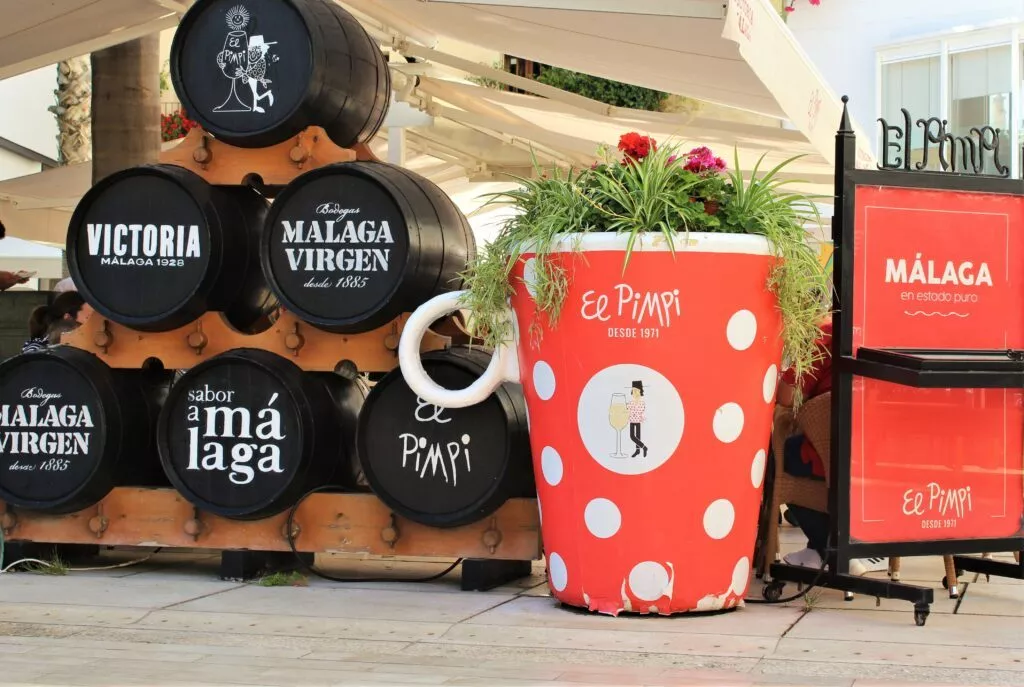
It is a bodega founded in 1971, with traditional decor. Today it has a great reputation, with many stars having left autographs on the walls or barrels of the bar.
The dishes are very good. In addition, some of the fruits and vegetables are grown by the owners a few kilometers away in Axarquia. You should at least stop at the terrace which offers a magnificent view of the Alcazaba.
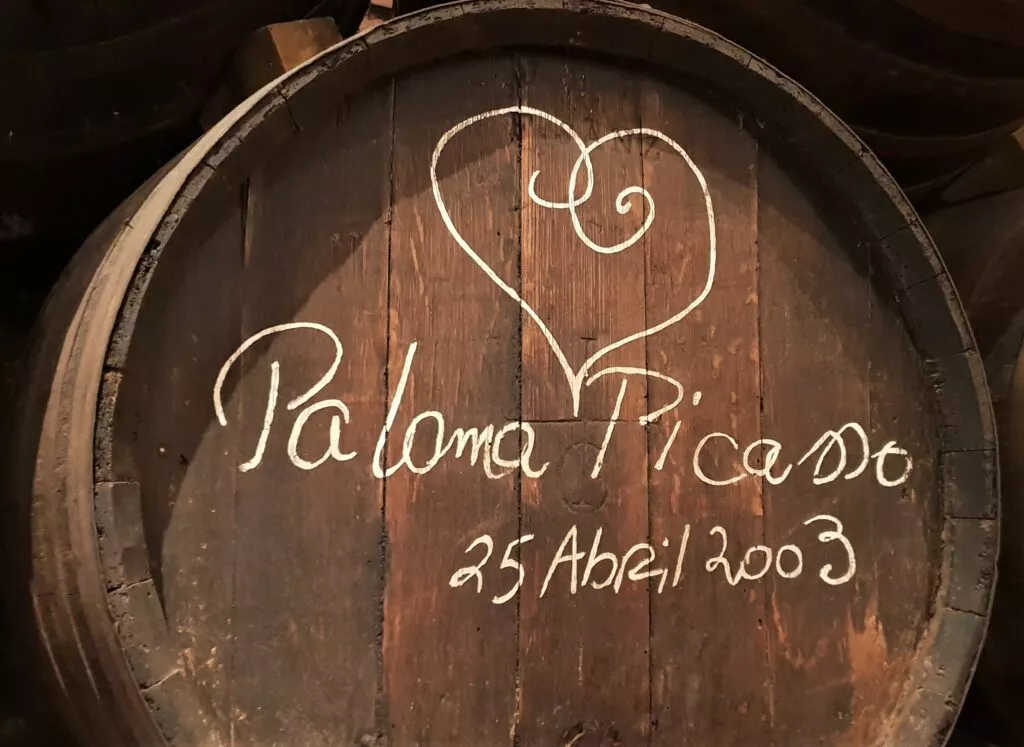
La Recova
It’s a completely unusual place. The restaurant is located in an antique shop! The cuisine is traditional and good. There are also a few tables outside. An ideal place for a good breakfast or to eat some tapas!
La Antigua Casa de Guardia

A very typical bar, where the inhabitants of Malaga also come to have a drink. It’s a very well-known place with barrels of wine installed behind the counter.
The wines are drawn directly from the barrel. This is the opportunity to get to know Malaga wine, a natural sweet wine accompanied by some tapas.
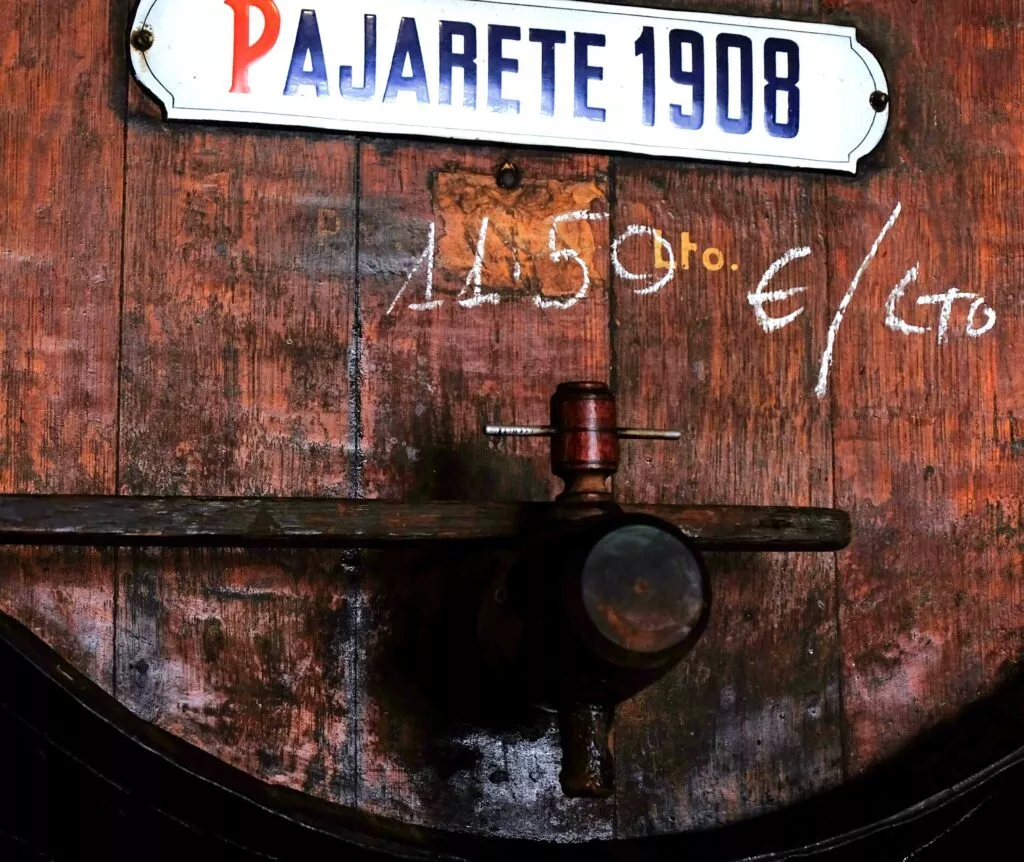
Wine production in Malaga is one of the most ancestral in Europe.
In this link you will discover the cultivation of the Moscatel vine, with which we also make the famous wines and raisins, the pasa de Malaga!
Lolita taberna andaluza
The taberna is located 3 minutes from Plaza de la Constitucion, in the center of Malaga. This is the location of Taberna Lolita.
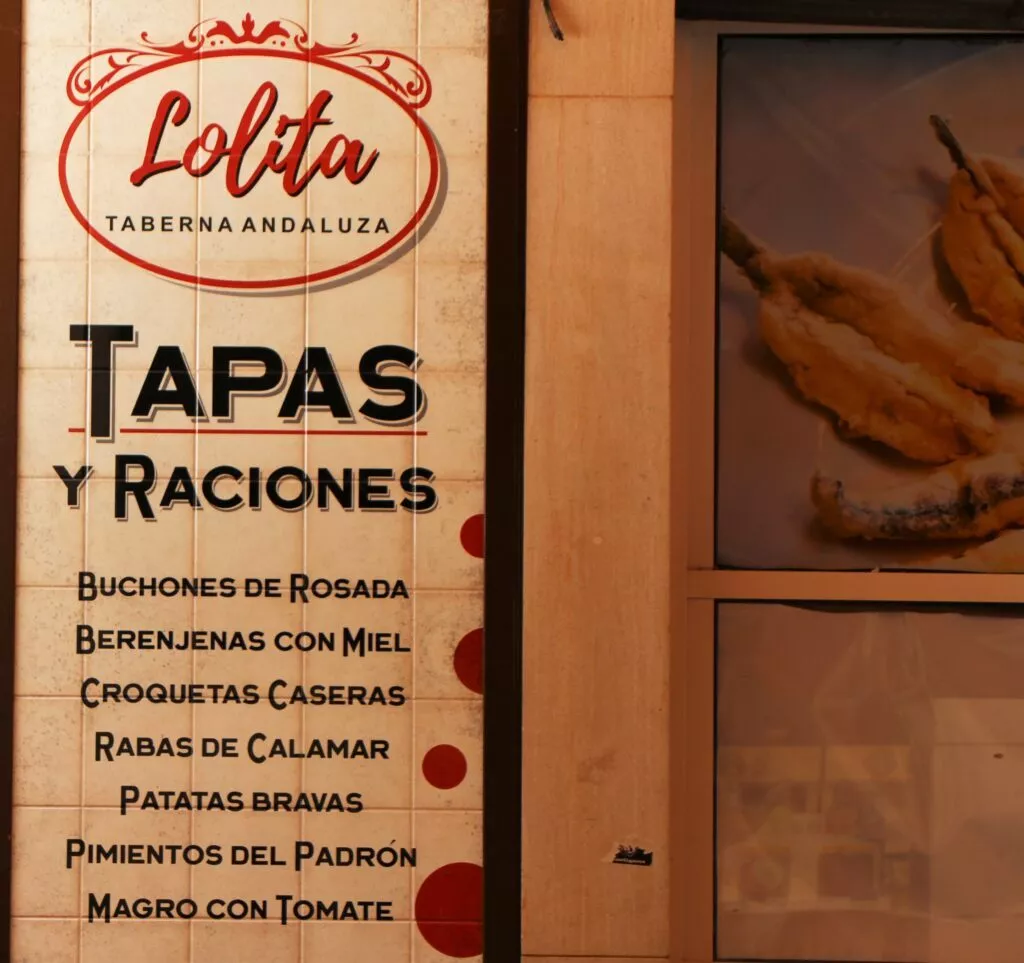
The Alcazaba premium hostel Malaga
There is the possibility of having a drink on the rooftop of this hotel. The view of the Alcazaba is splendid!
Taste the espetos de sardinas
To taste some sardina espetos, or fish, then the beaches in the El Palo district will be the ideal place, facing the sea.
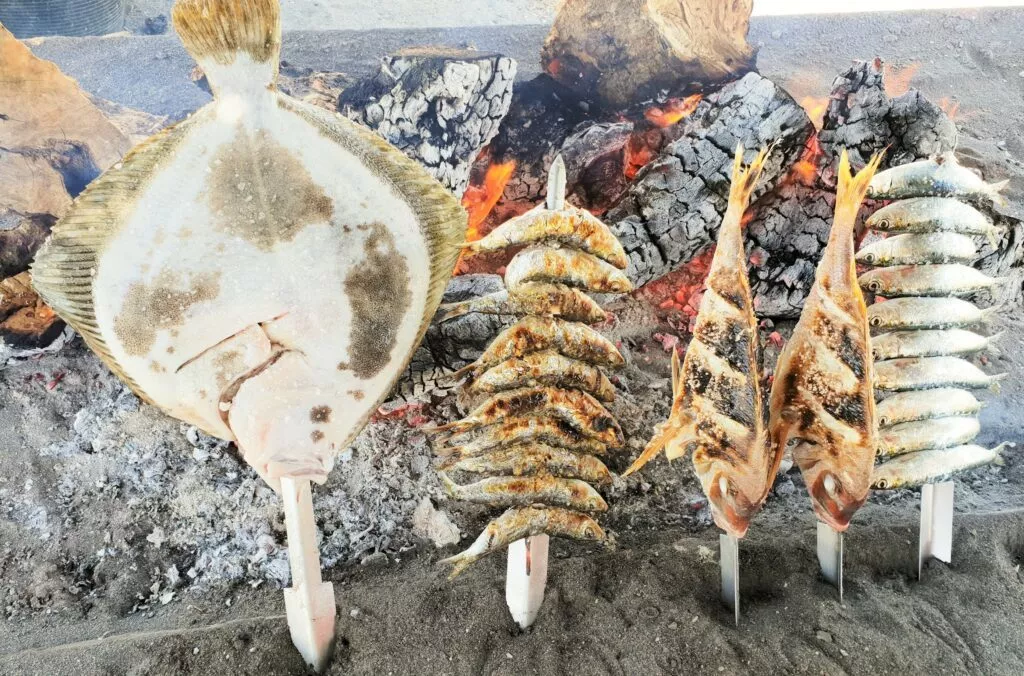
The passage of Chinitas
Here is a hidden place in Malaga that I really like: el pasaje de Chinitas.
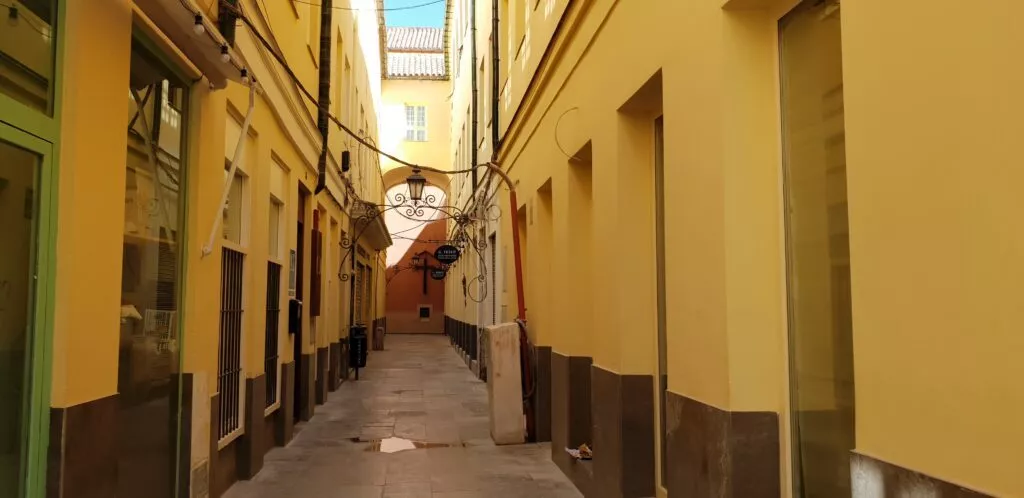
Federico Garcia Lorca – like other artists and intellectuals – often went to the Chinitas café bar. There he wrote the poem: El Café De Chinitas.
The first verses:
- In the Chinitas café
- said Paquiro knew her man:
- “Be more valiant than you,
- more bullfighter and more gitano”…
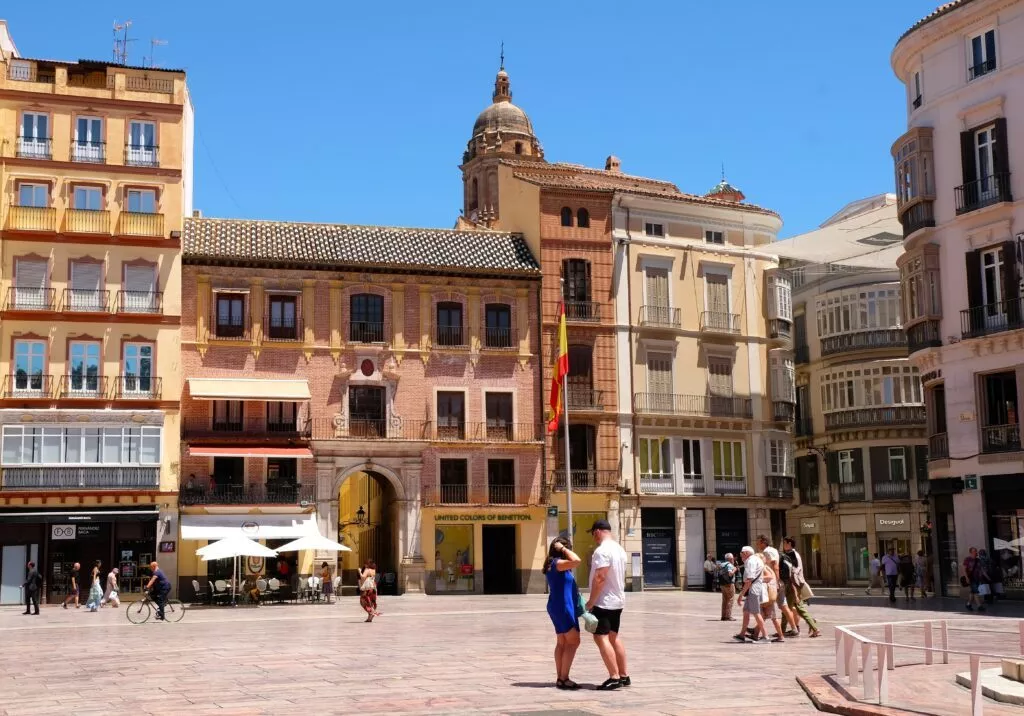
Le street art in Malaga
Urban art is very present in Malaga. The main works of Street art are found in the Las Lagunillas district and the Soho district.
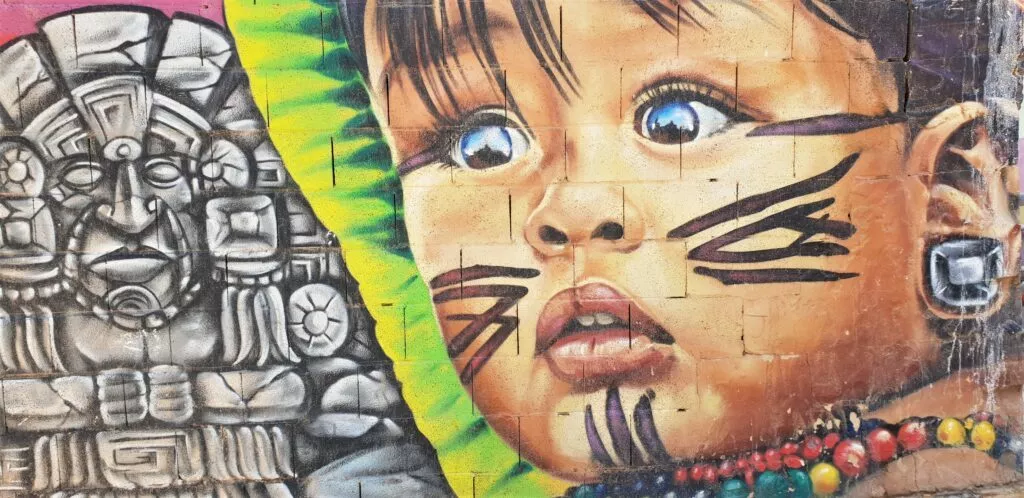
Find out more about street art in Malaga.
Discover 21 curiosities and hidden gems in Malaga
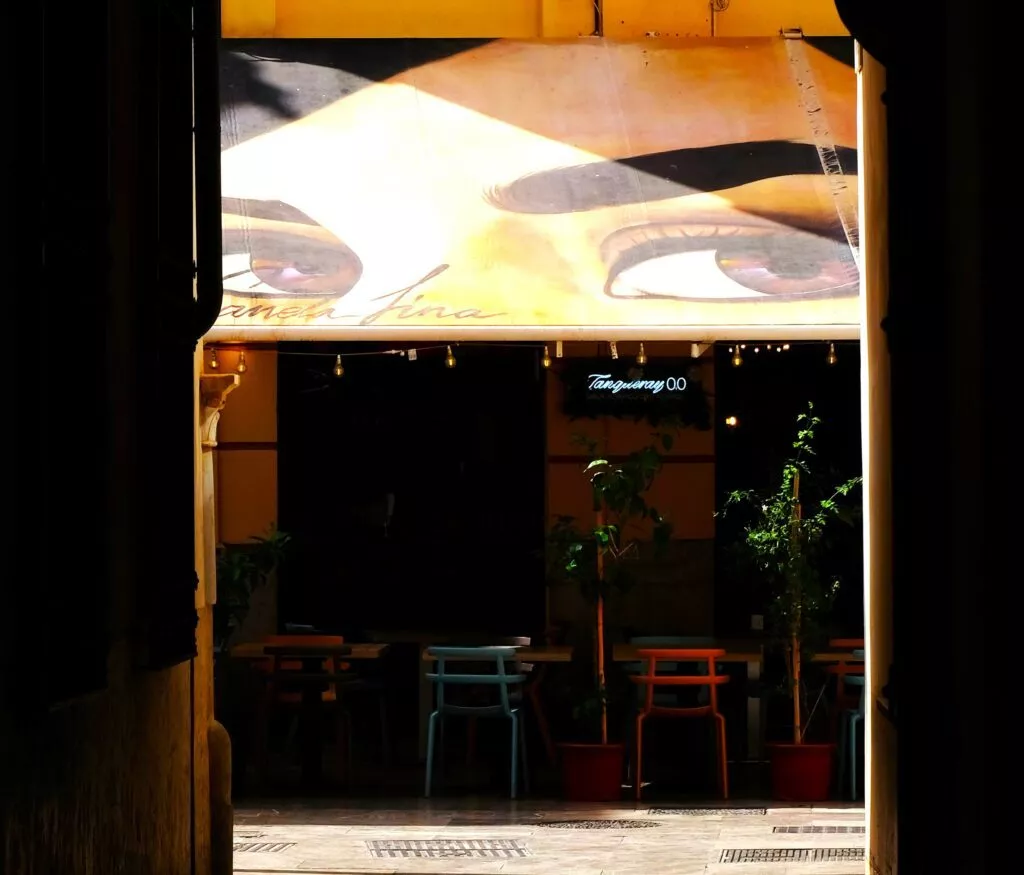
If you want to explore Malaga further, here is a link to discover the unknown and secret places of Malaga.
The symbols of Malaga
Titles given to Malaga:
“The first in danger of freedom, the very noble, very loyal, very hospitable, very beneficent and always called the City of Malaga” .
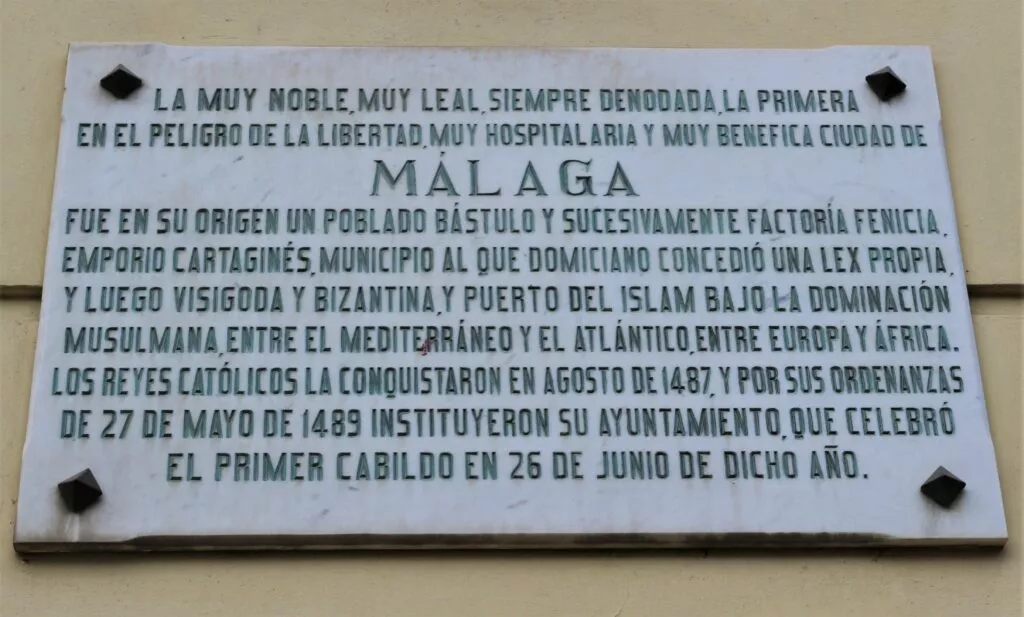
The patron saints of Malaga
There are three of them. These are the martyrs San Ciriaco, Santa Paula and the Virgen de la Victoria.
Popular emblems of Malaga:
- The statue of El Cenachero. It represents a profession that has now disappeared, that of itinerant fish seller in the streets.
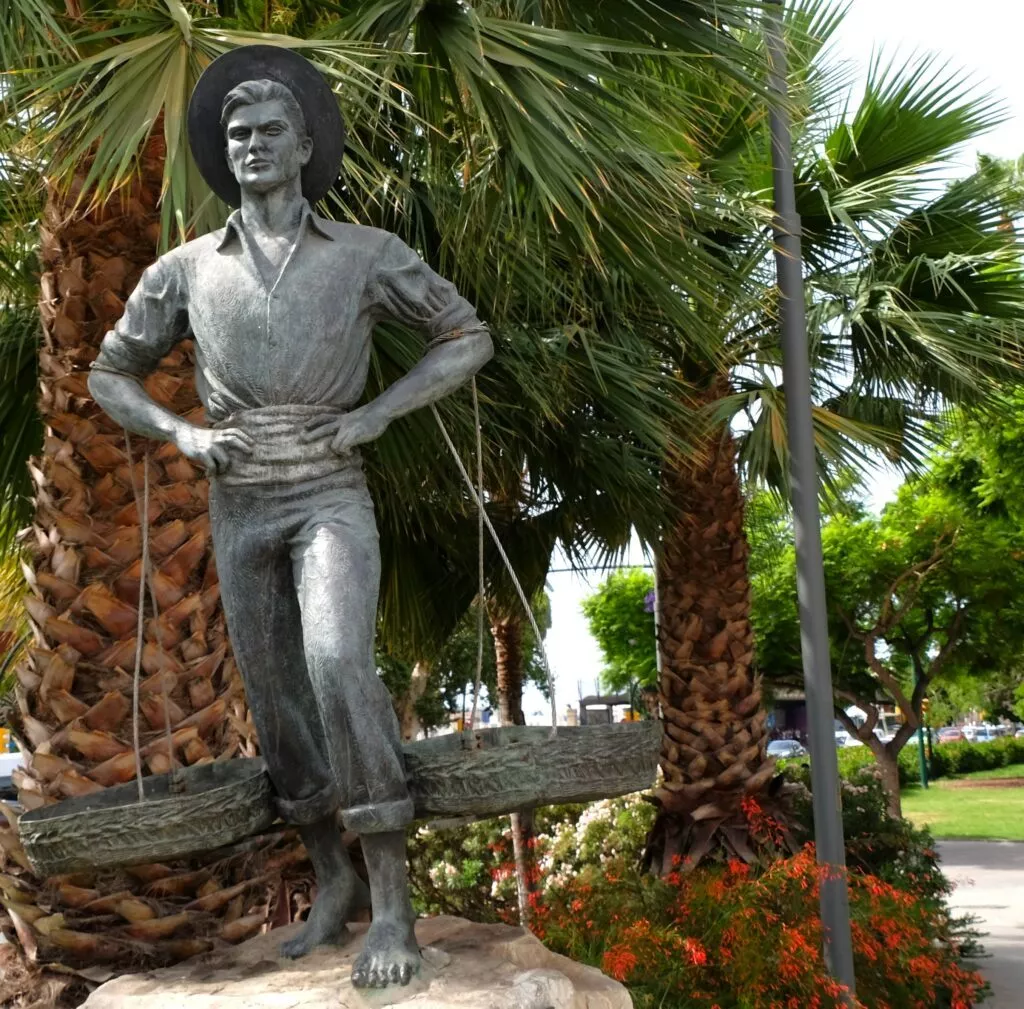
- The biznaga created by the biznaguero. Biznaga is a flower sold in the streets of Malaga. Its particularity is that this flower does not exist. It is the biznaguero who makes it from jasmine flower buds and dry herbs.
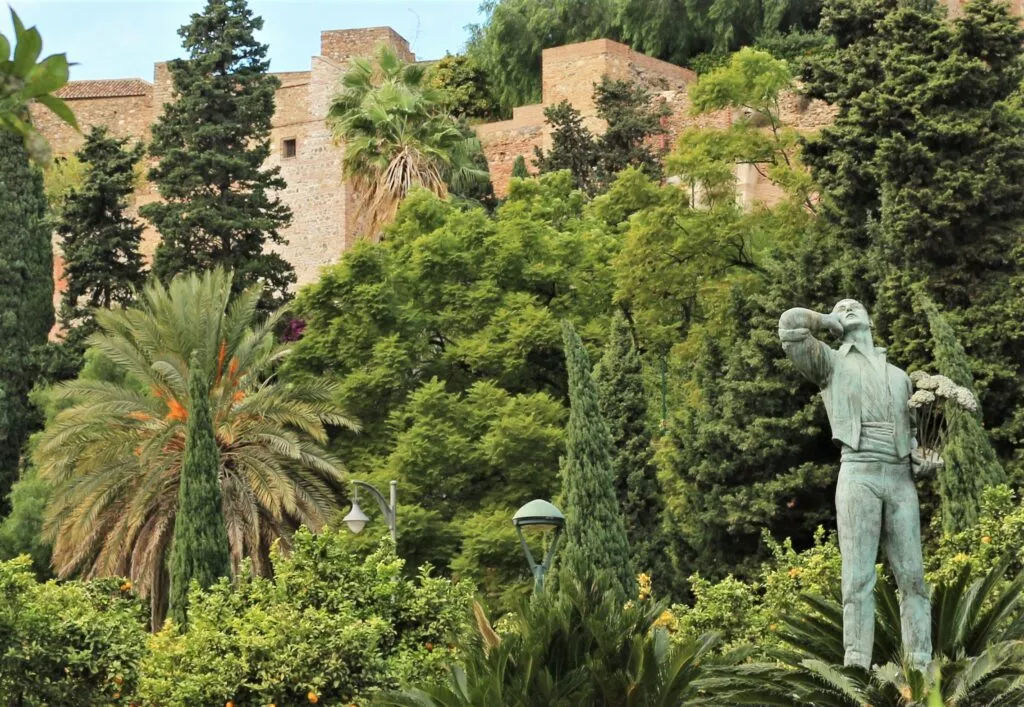
- Most of the time these flowers are stuck in a cactus leaf that the biznaguero carries in his hand.
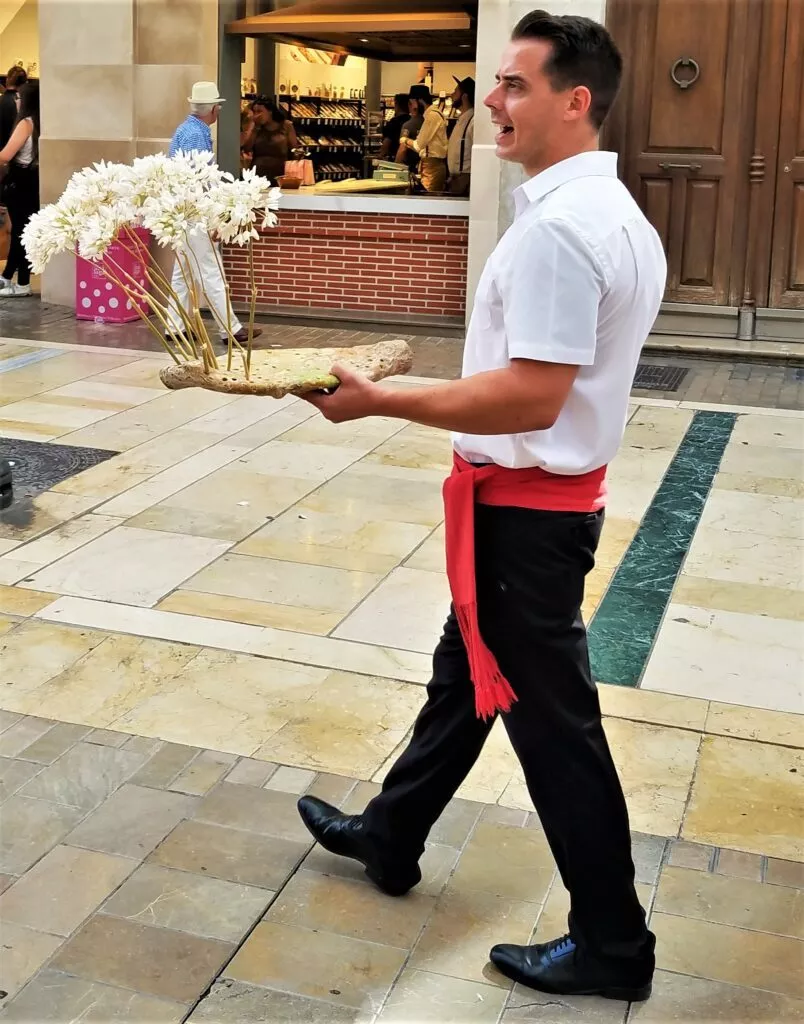
- Espeto de sardinas. The sardine skewer has become the typical dish in the chiriguintos of Malaga and the entire Costa del Sol. However, originally the king fish in Malaga is the anchovy, el boqueron. The Malagueños call themselves “los boquerones”!
Book accommodation
Below you will find all the hotels and accommodation available in Malaga, after selecting your dates:
Ideas for outings around Malaga
Visit Frigiliana
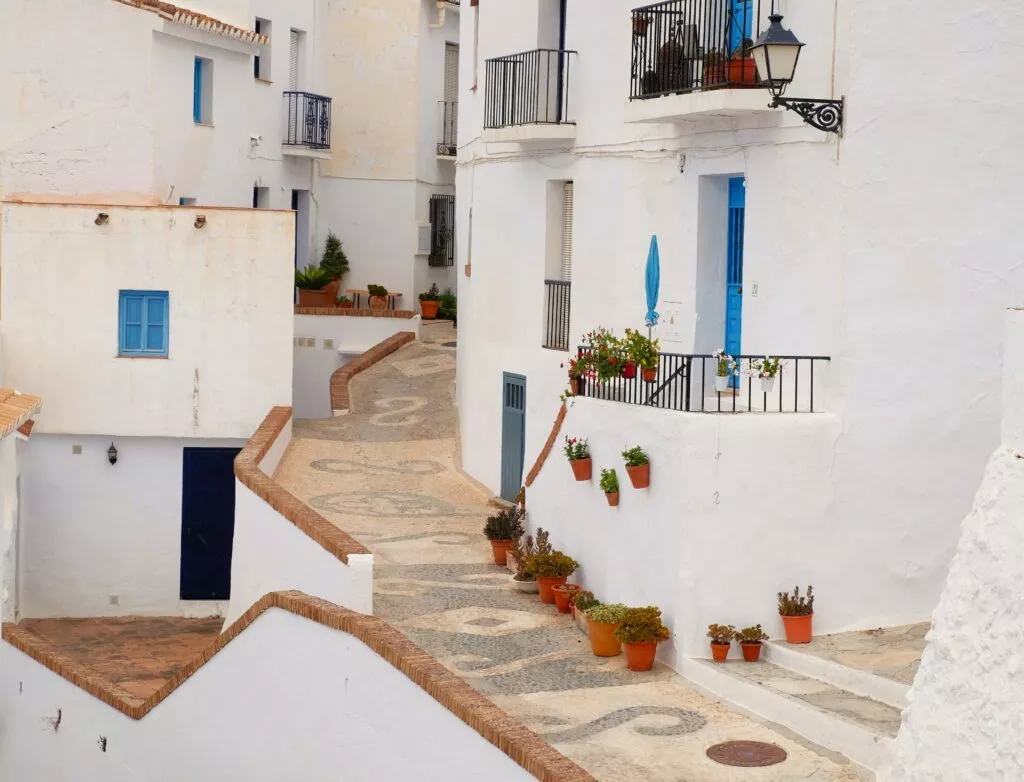
Frigiliana is located east of Malaga and is one of the most beautiful villages in Spain! Travelers will not be disappointed with what there is to see in Frigiliana.
Visit Antequera and El Torcal
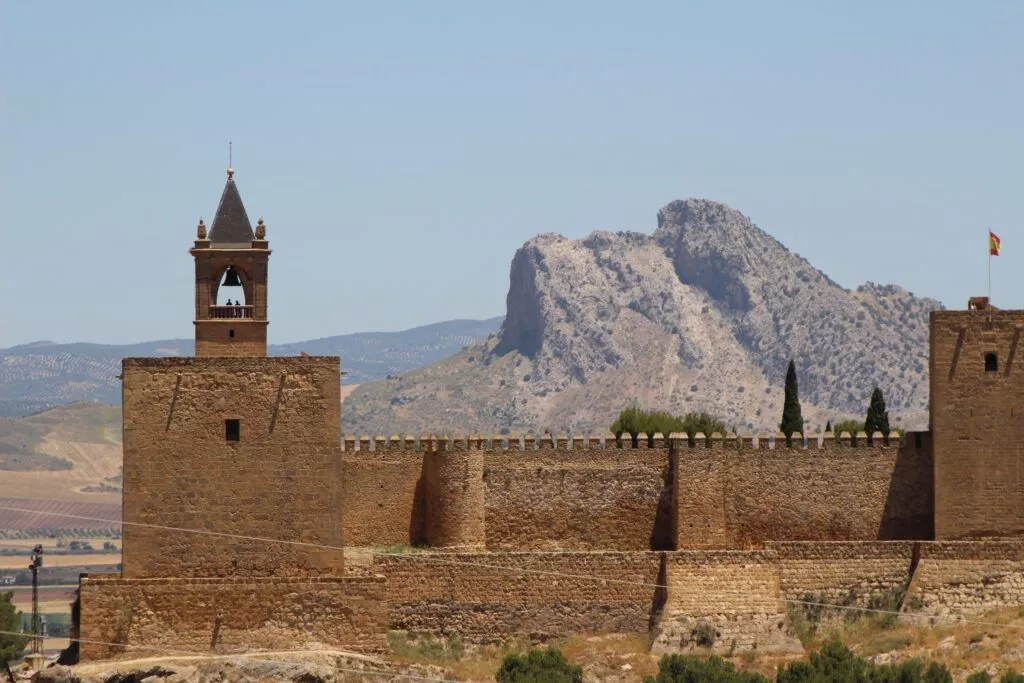
Antequera is located almost in the center of Andalucia. It is a city that offers many places to visit. Here’s what to see in Antequera.
See Ronda and its famous Puente Nuevo
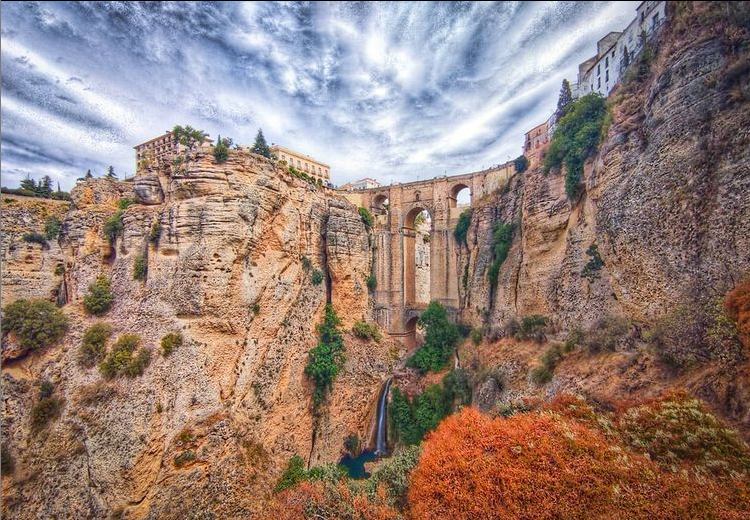
The town of Ronda is worth a nice visit. The number of places to visit in Ronda is incredible.
Some useful links for your trip to Andalusia
Easy and economical bookings
Seville
Seville, the capital of Andalucia, is a city full of treasures to discover and monuments to visit.
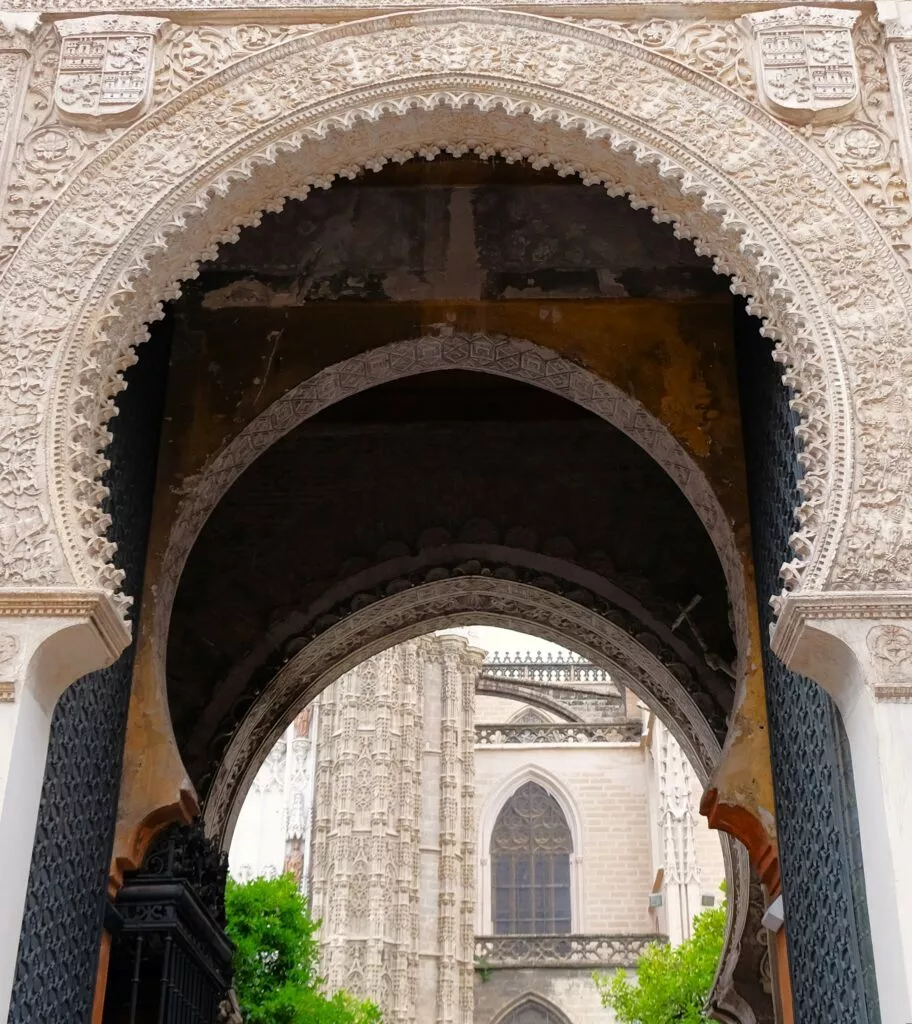
Here you will find everything you can see in Seville in 3 days. And for those who will stay longer you will also find information on secret Seville and the Santa Cruz and Triana districts.
Note: you can also choose to discover unusual places as well as the secrets and curiosities of Seville.
Cadiz
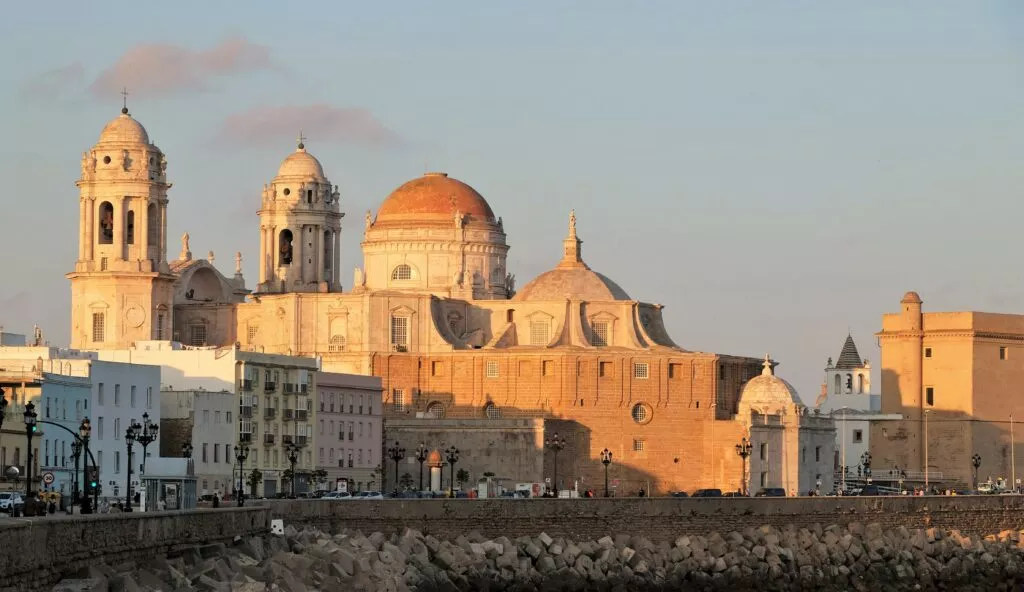
Visit Cadiz, a city with an incredible past and great beauty, on the Costa del la Luz.
Granada
Visit Granada, discover the Albaicin and Sacromonte districts:
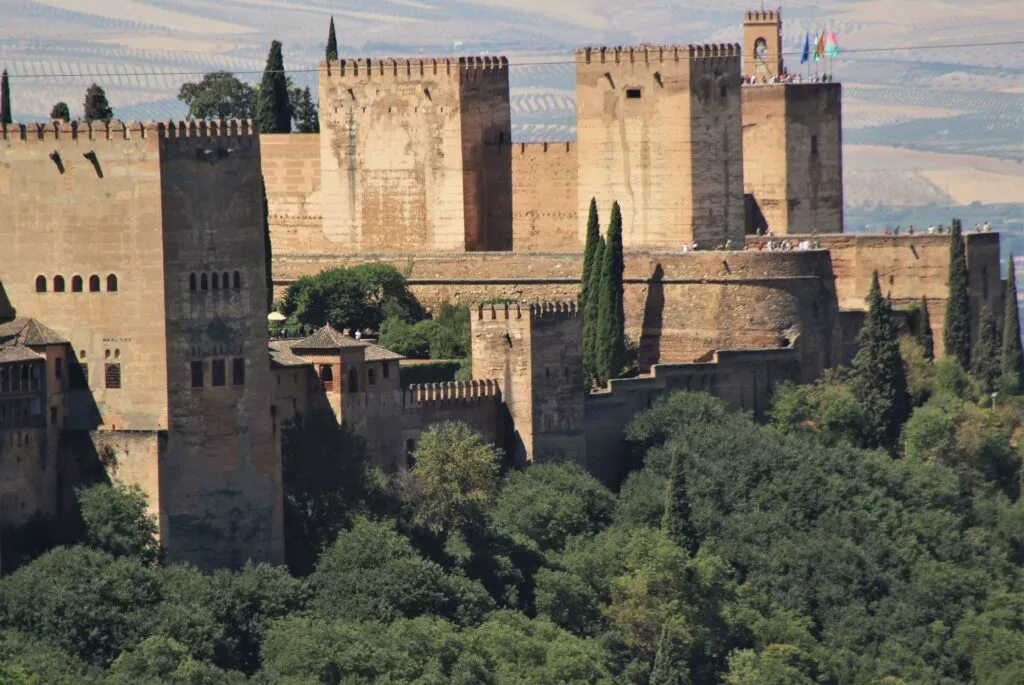
Cordoba
And of course, visit Cordoba, the caliphate city, and the Juderia district.
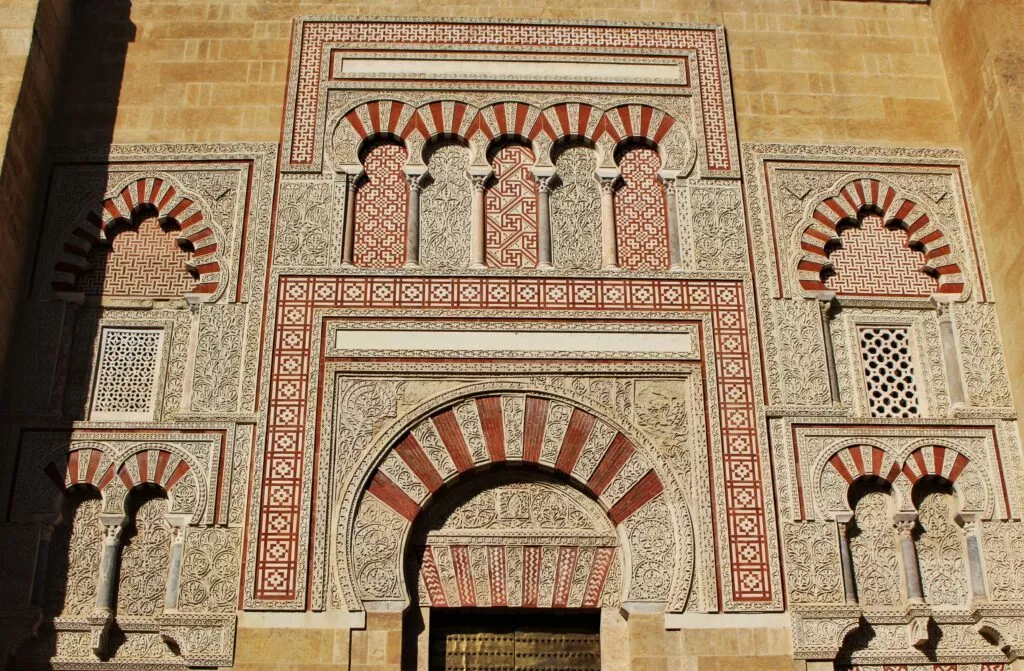
Discover more of Andalusia’s beautiful sites in the Andalusia blog pages.
Here is the link to receive our blog newsletter.
Here are the latest articles on Andalucia
-
Interactive map of Andalucia with best places to see
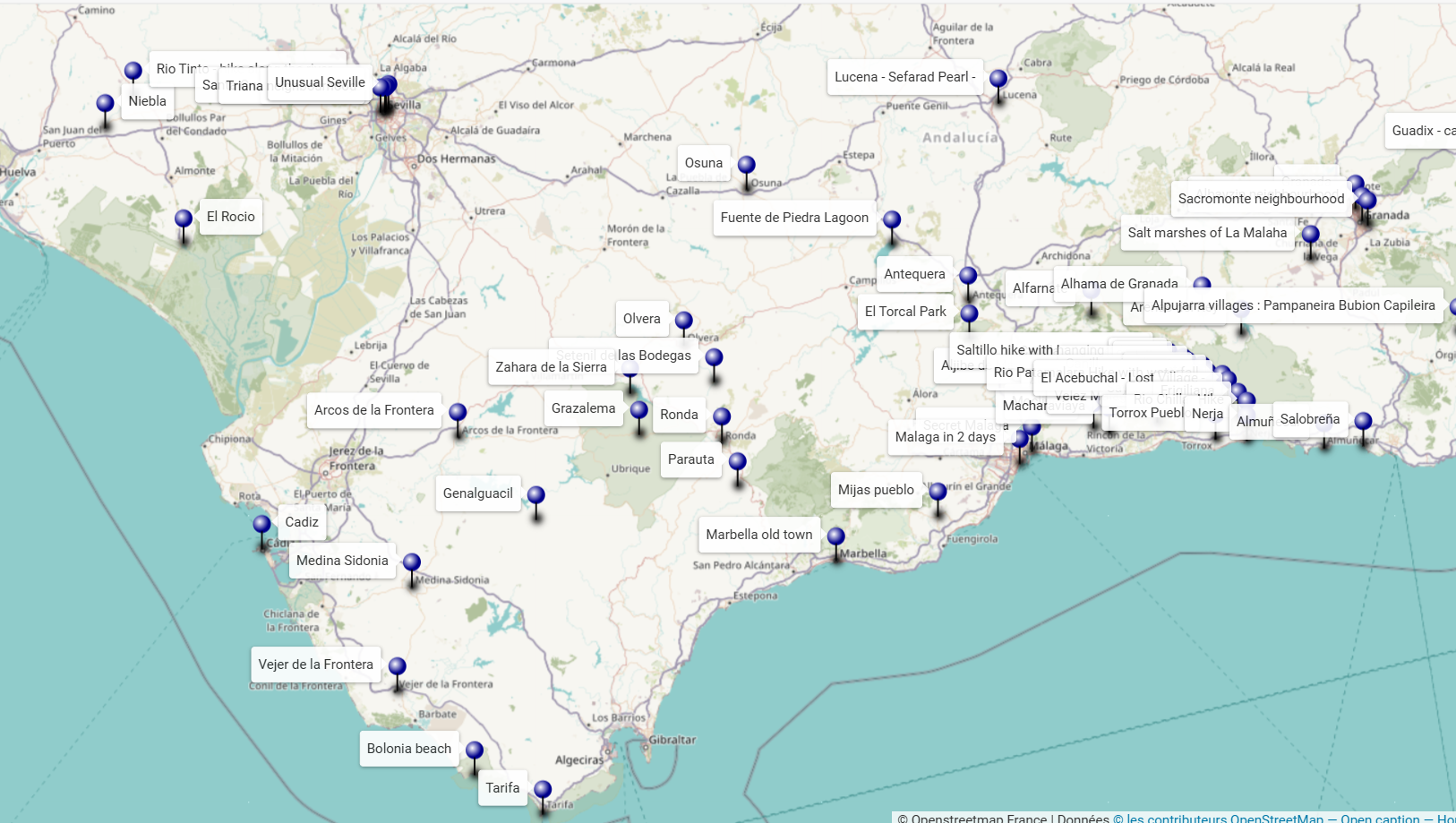
An interactive map of Andalucia to discover the sites to see around your holiday destination or to prepare a tour or road-trip.
-
Visit Olula del Rio, the Mujer de Almanzora and the museum
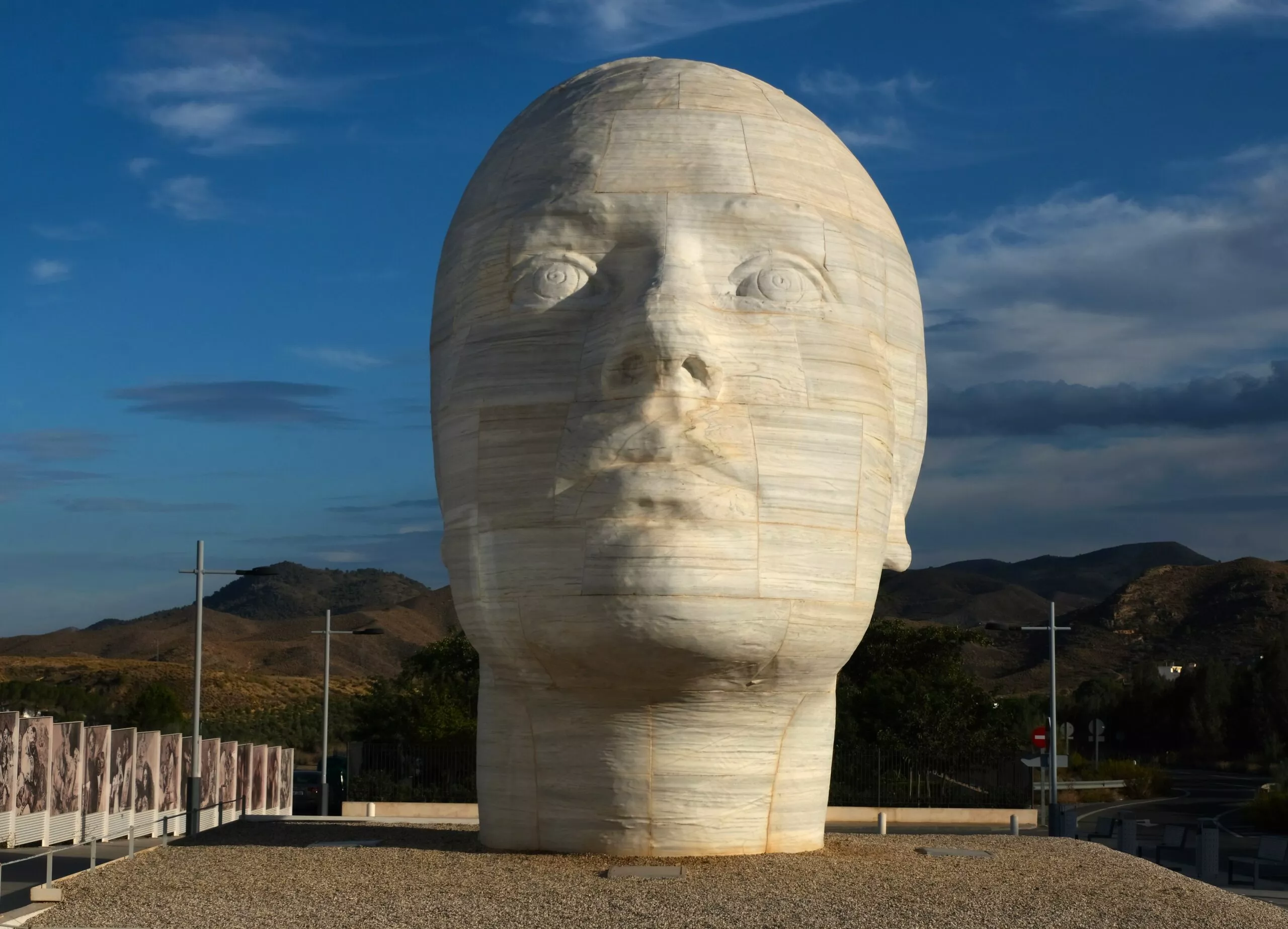
Olula del Rio see its 3 wonders: an extraordinary marble sculpture, a surprising museum and an incredible photography centre.
-
Fiesta del Queso in Zuheros Cordoba
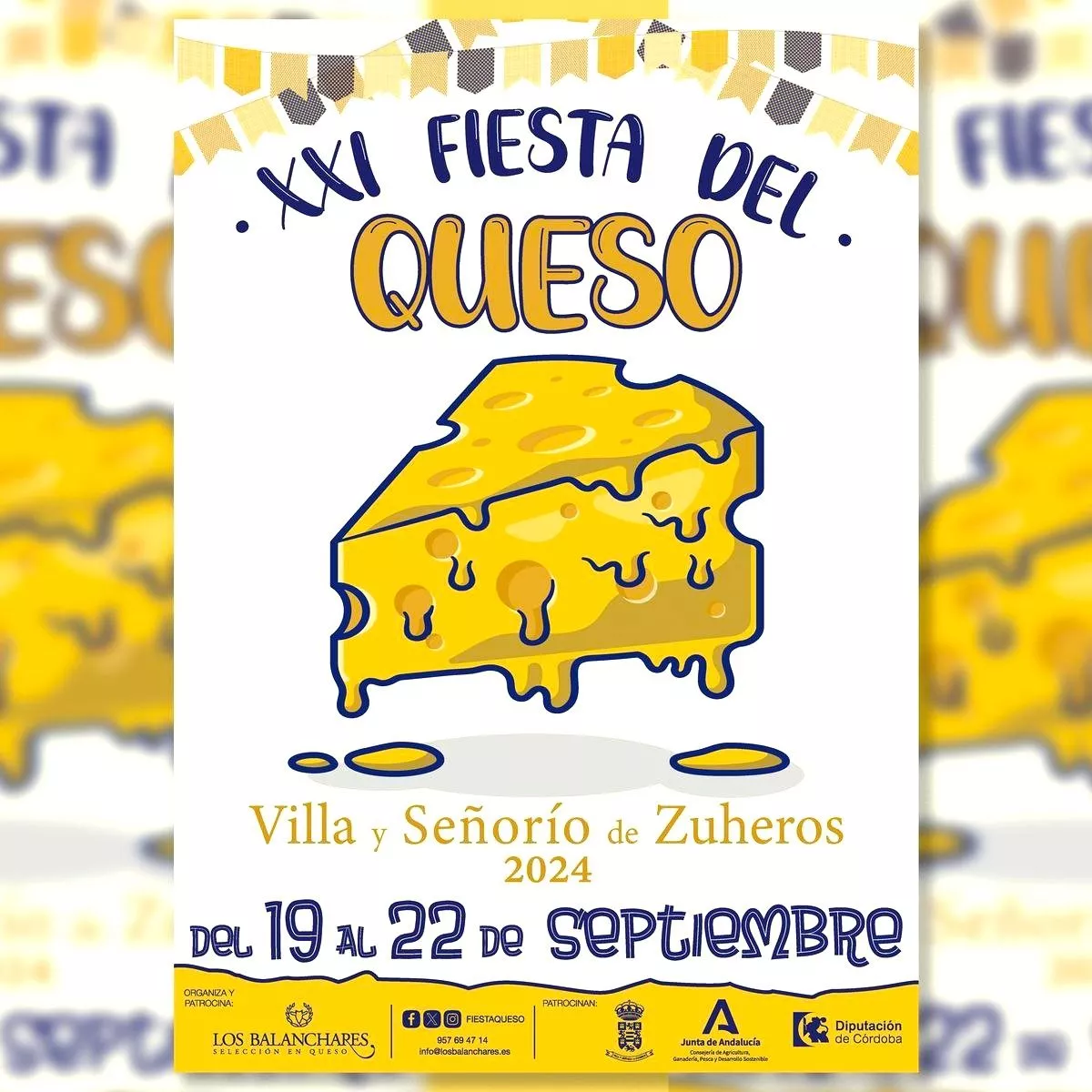
Discover the incredible Cheese Festival – Fiesta del Queso in Zuheros, one of the most beautiful white villages in Spain.
-
What to see in Baeza? – The 10 places to visit –
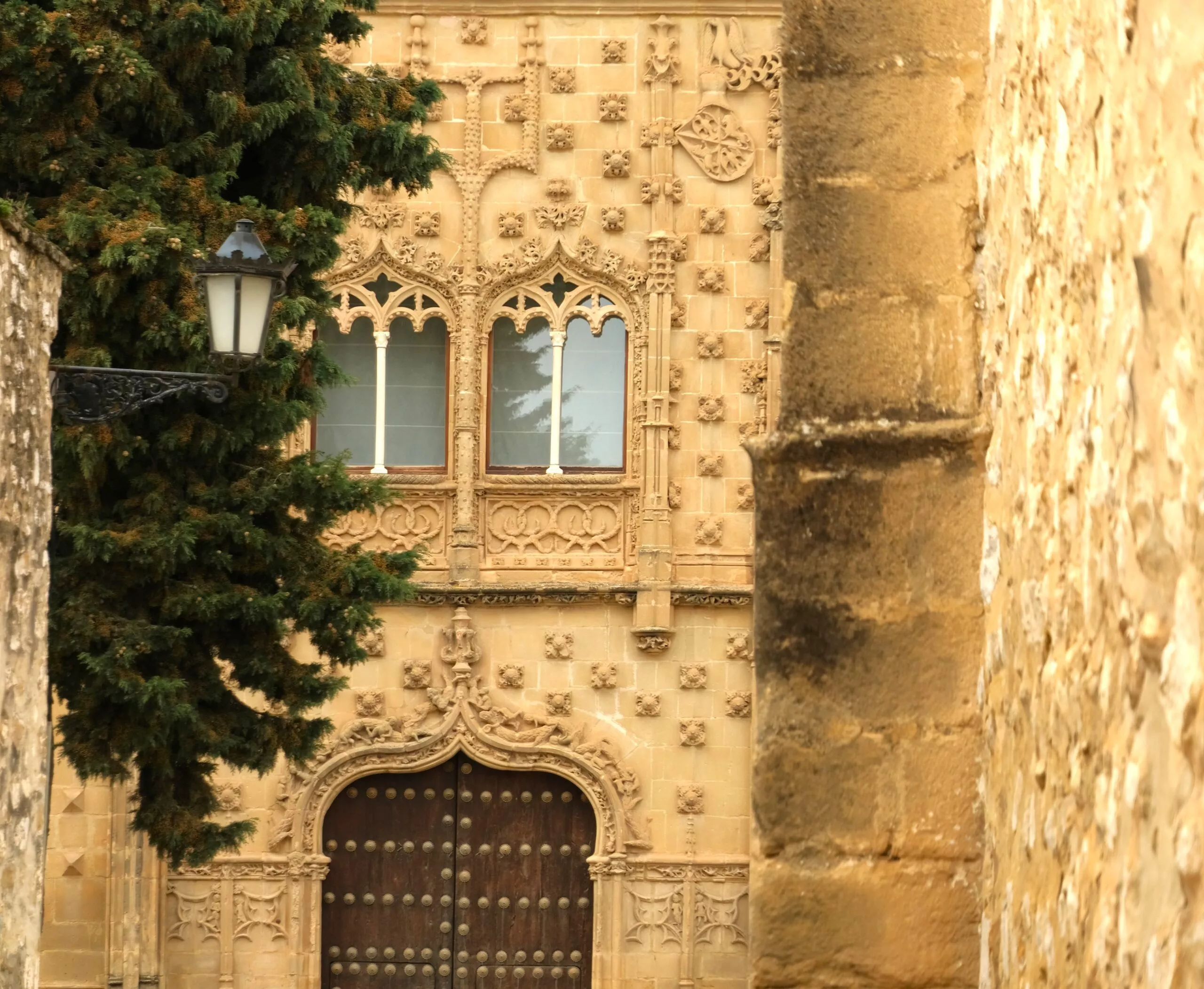
What to see in Baeza one of Andalucia’s must-see towns. Discover the best to see in Baeza, a UNESCO World Heritage Site.
